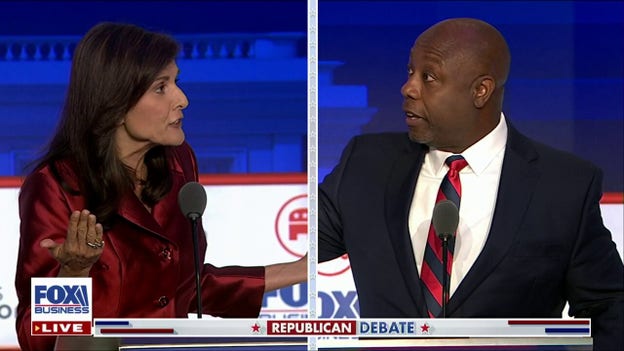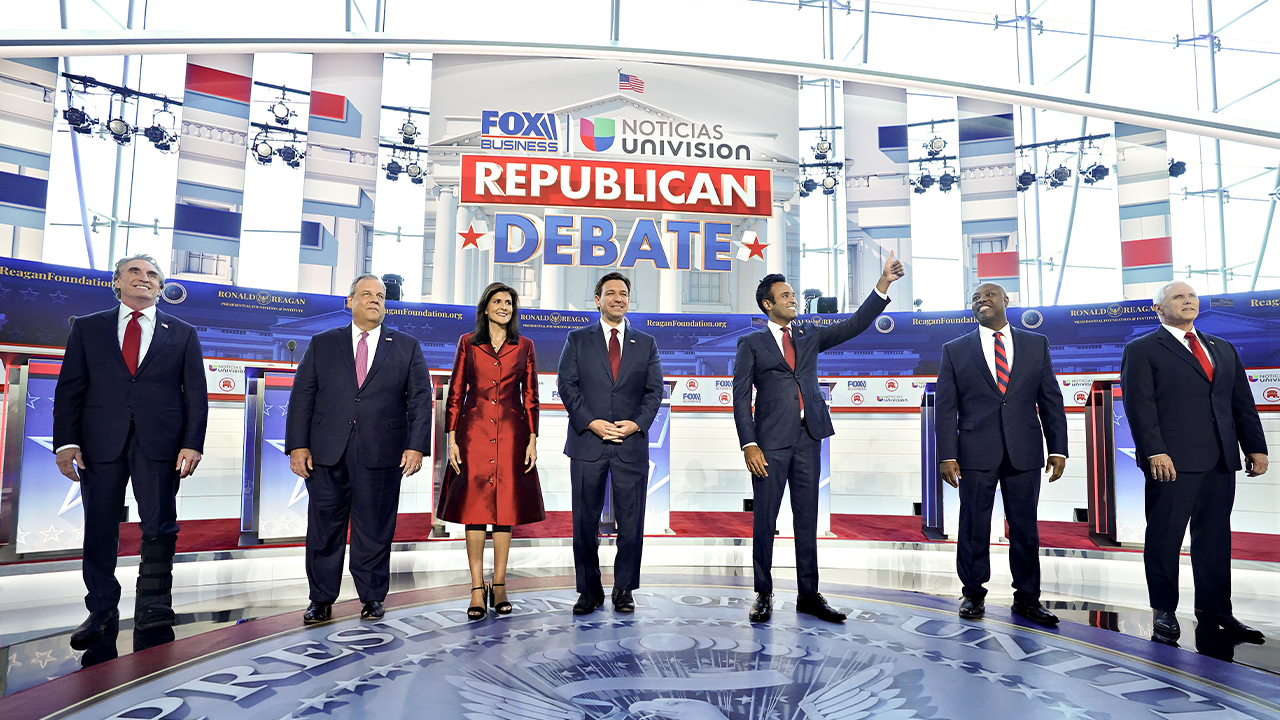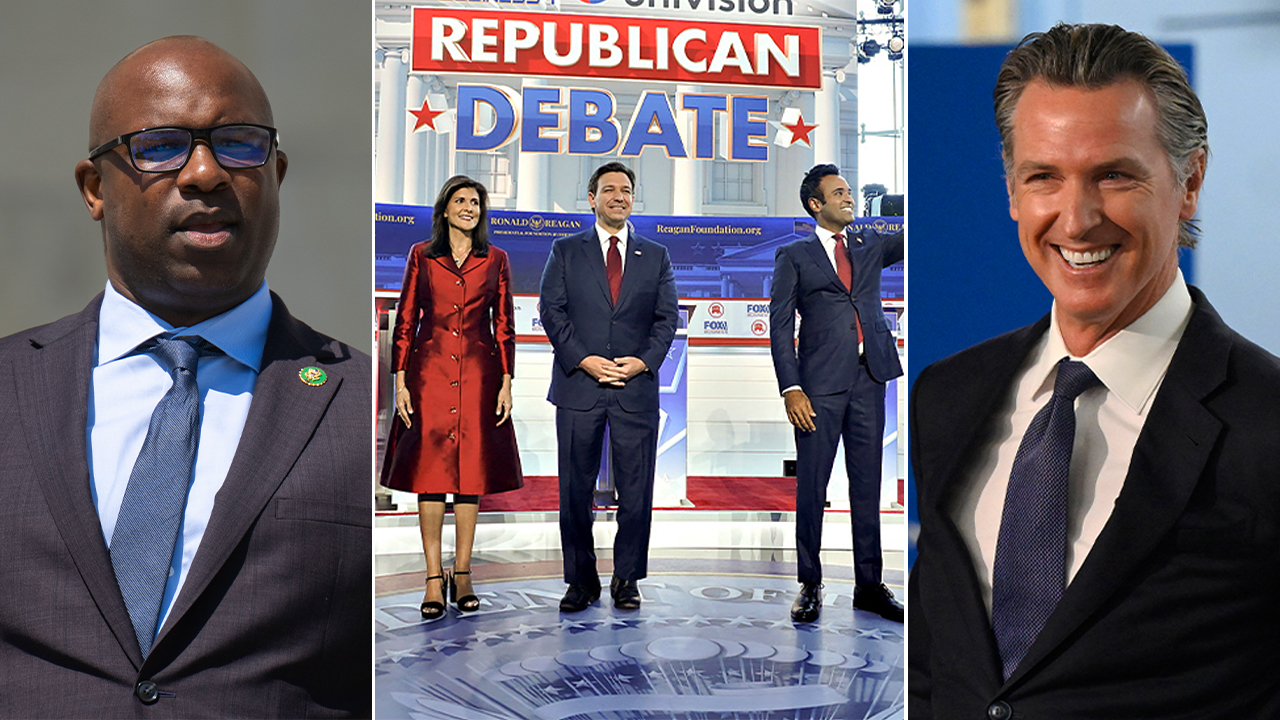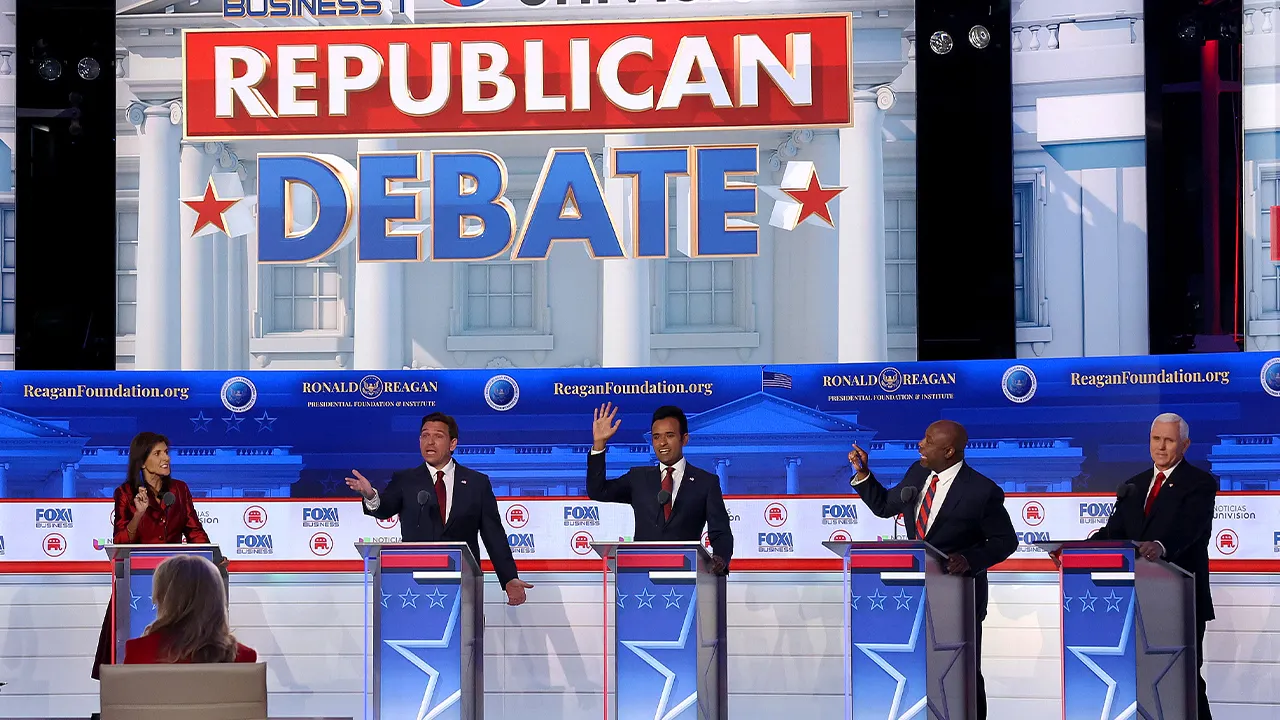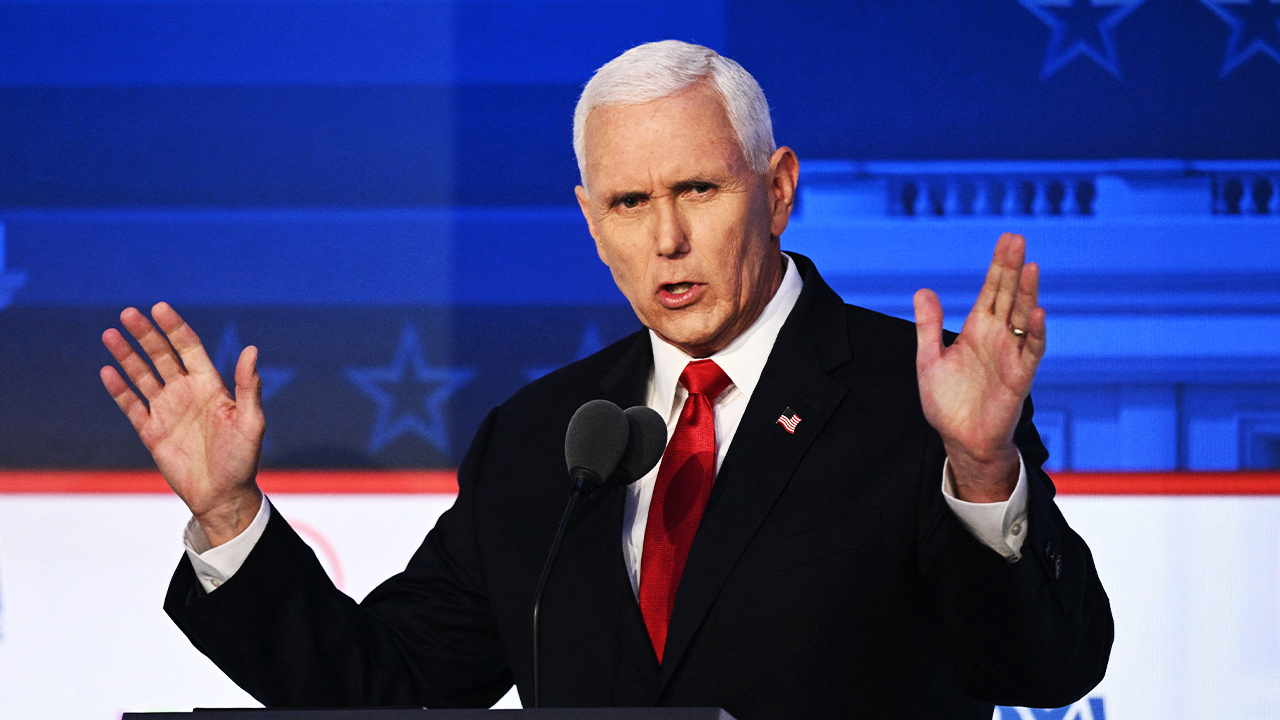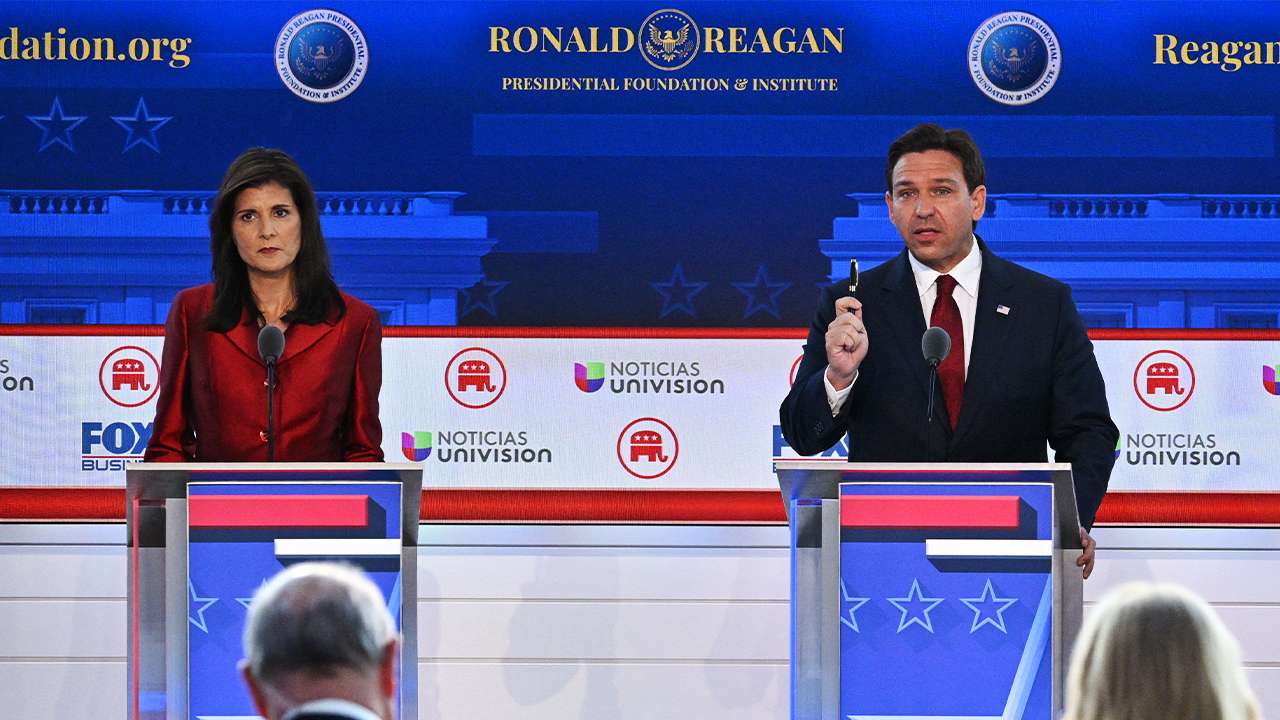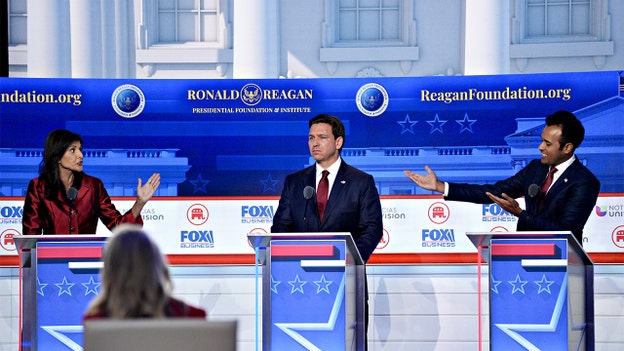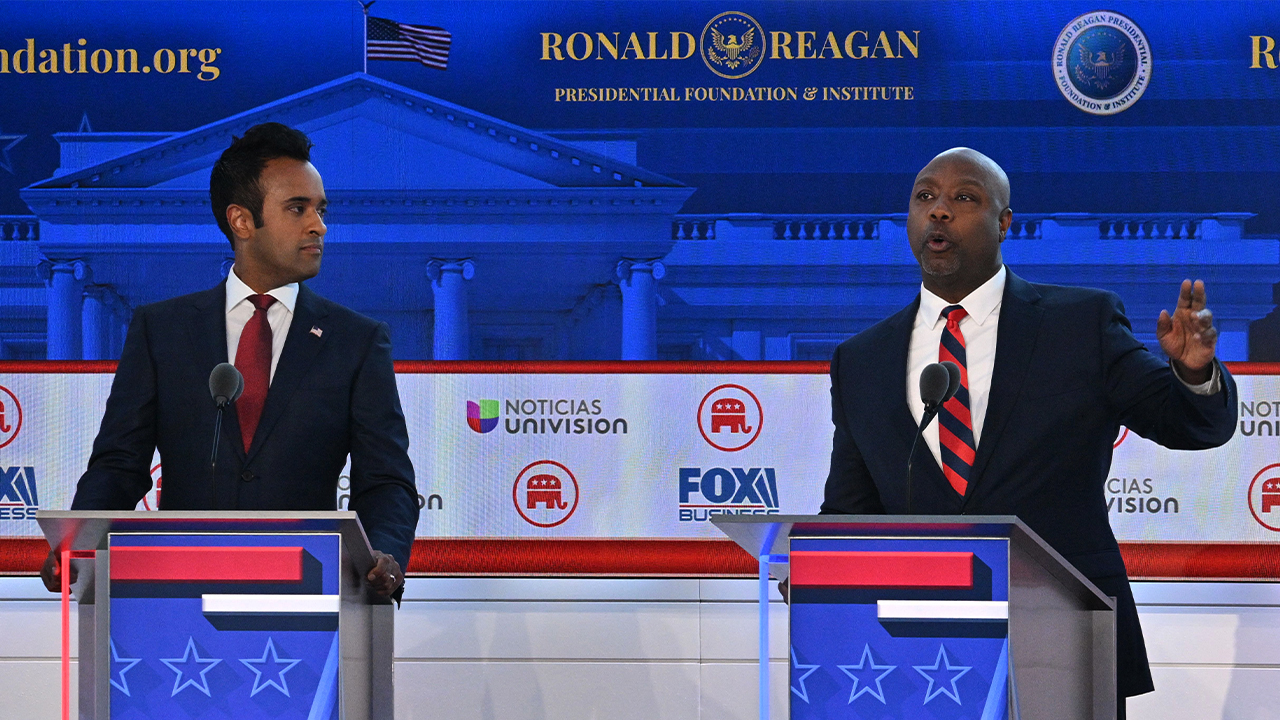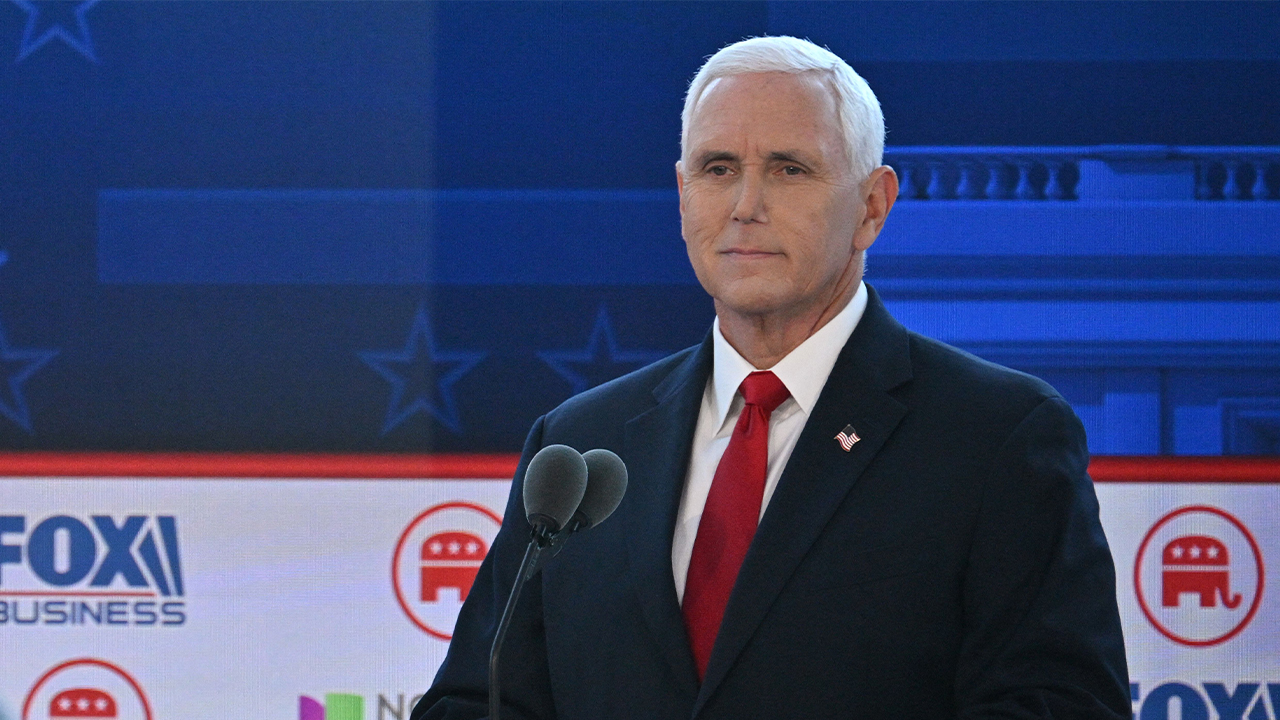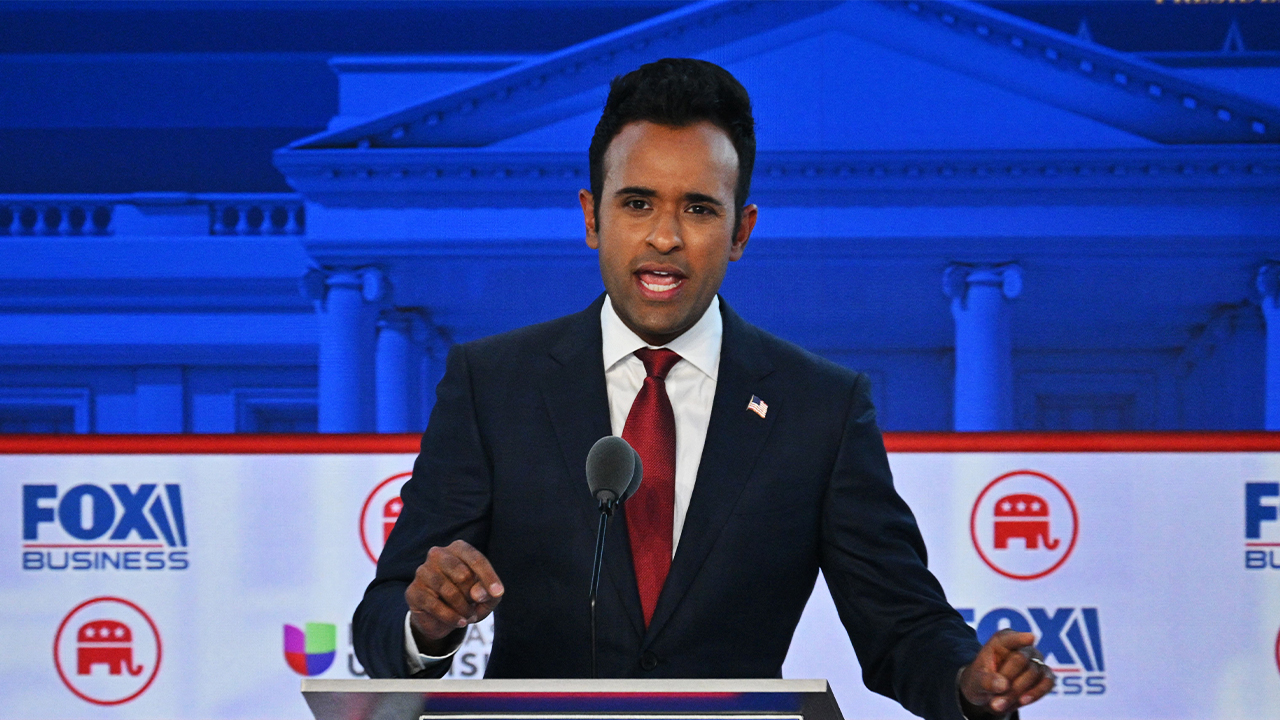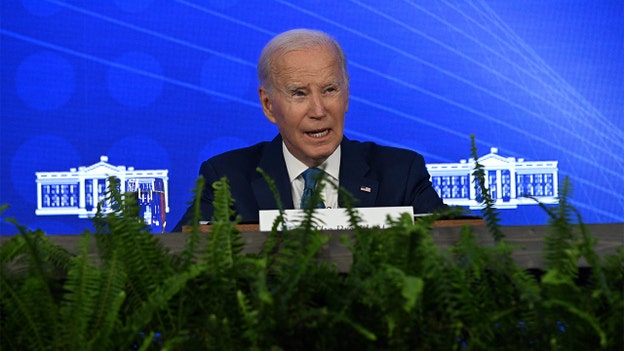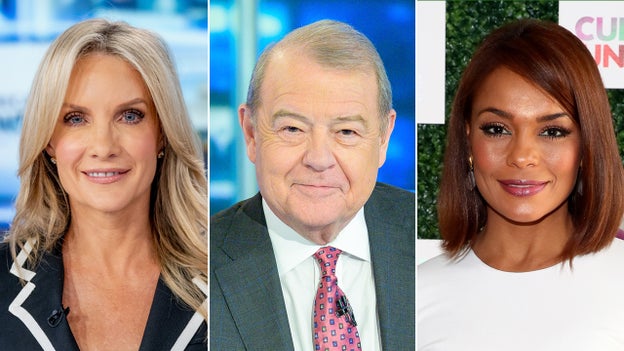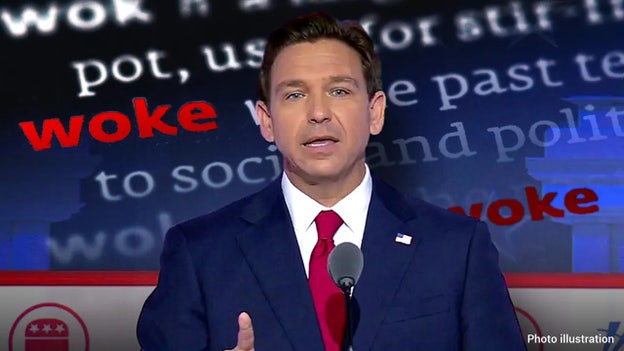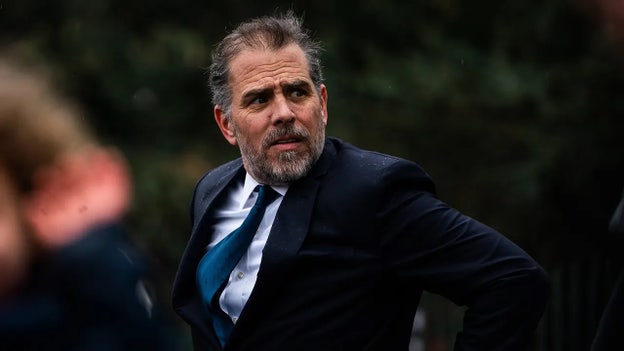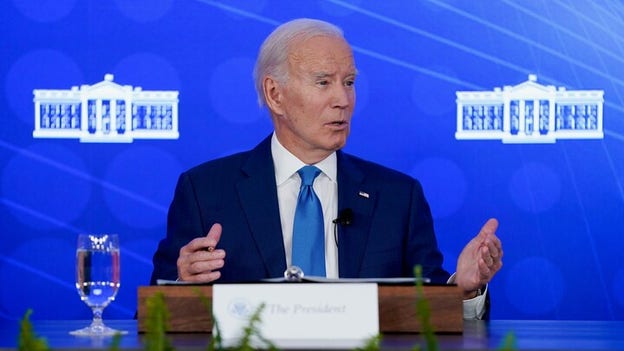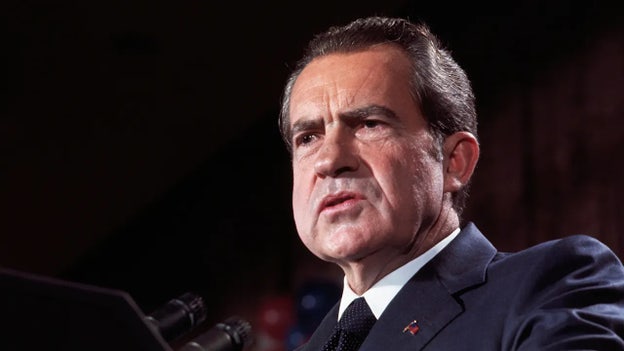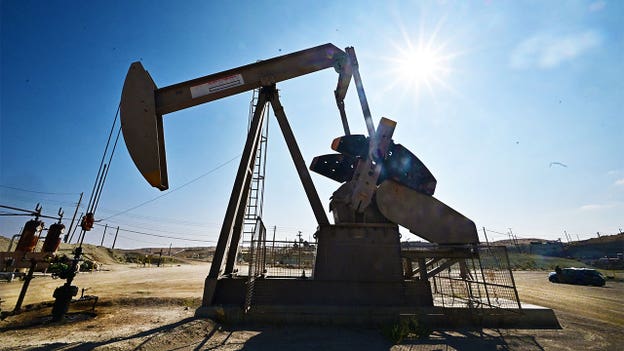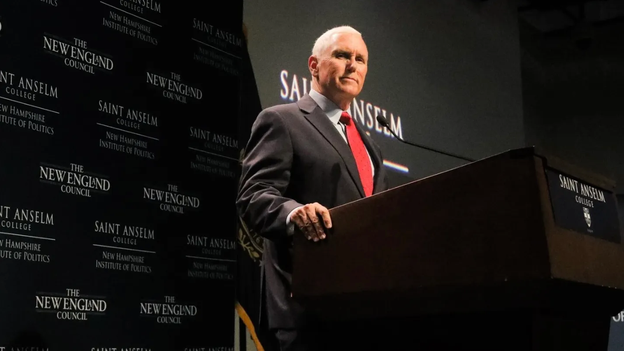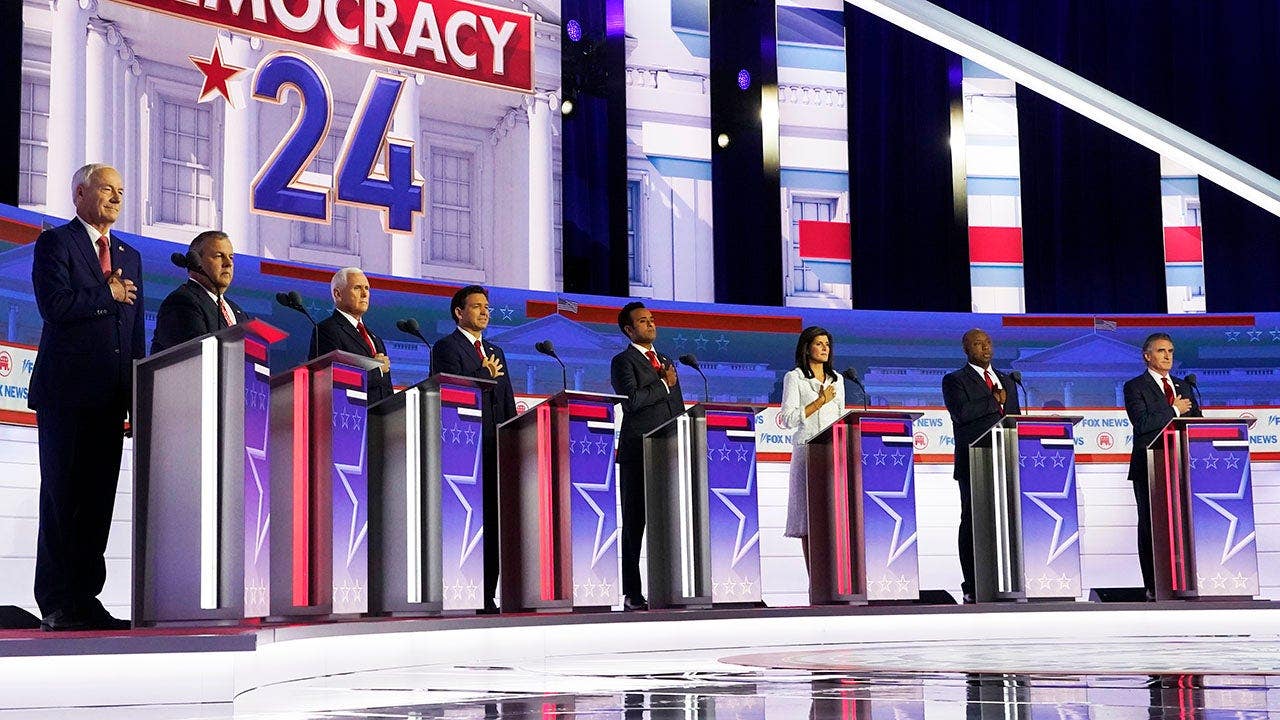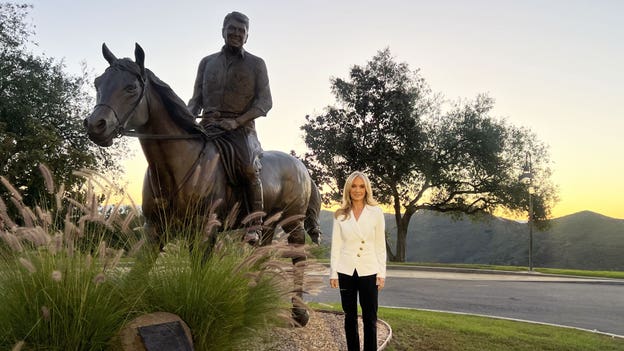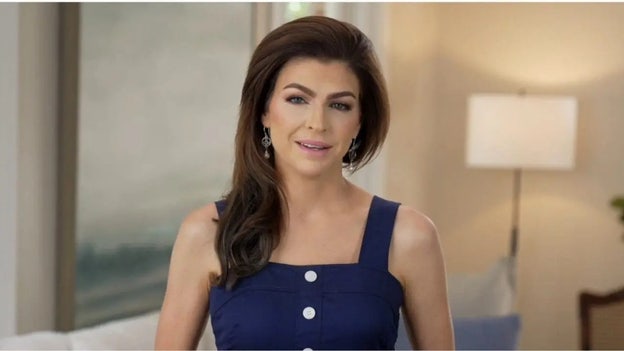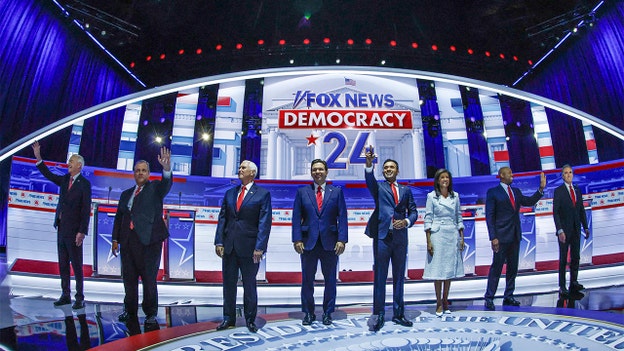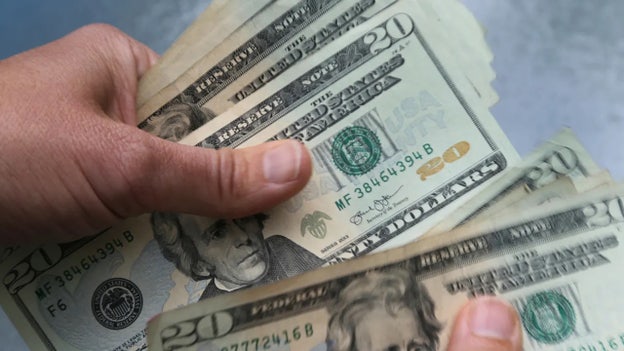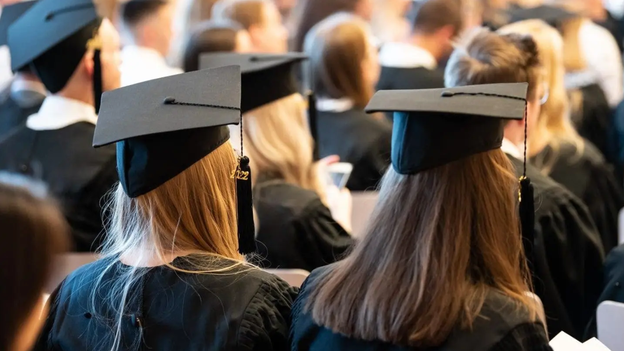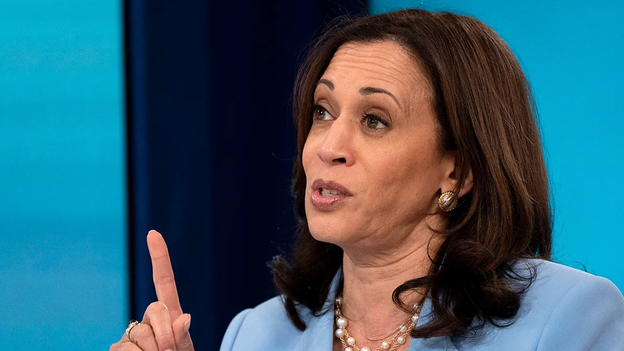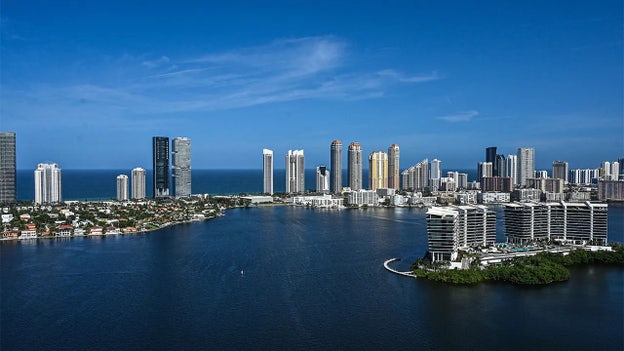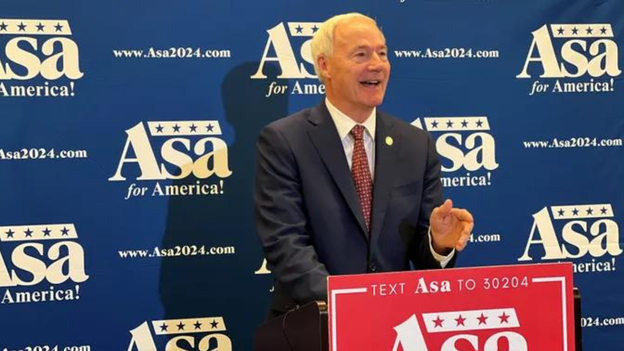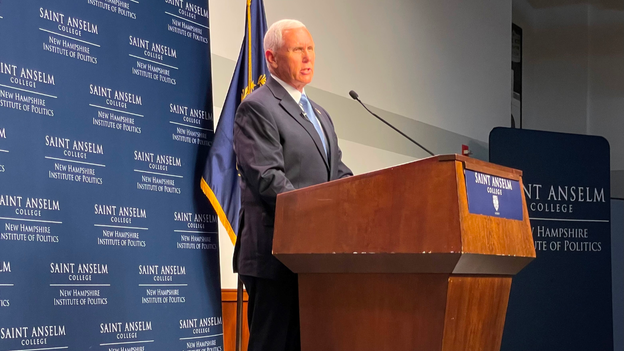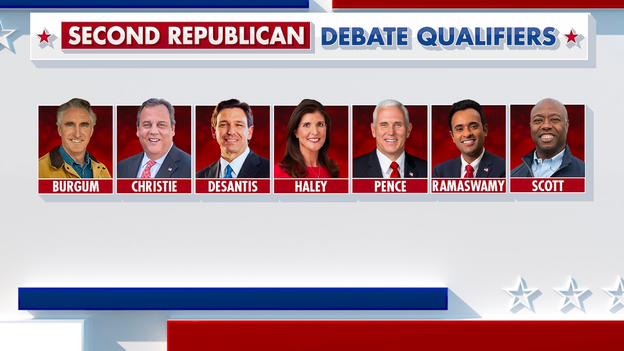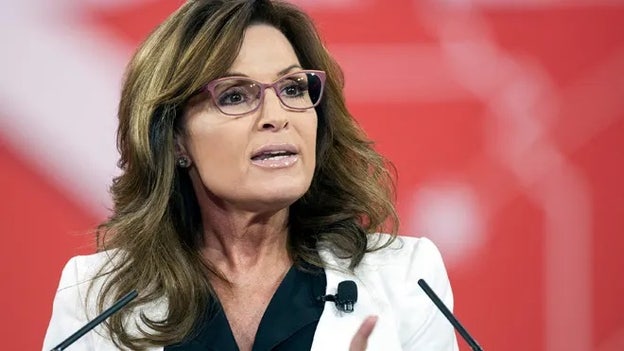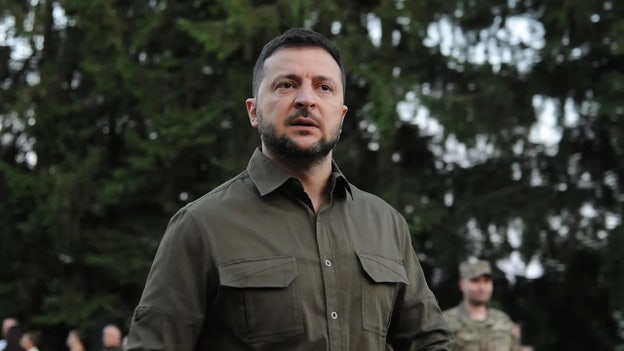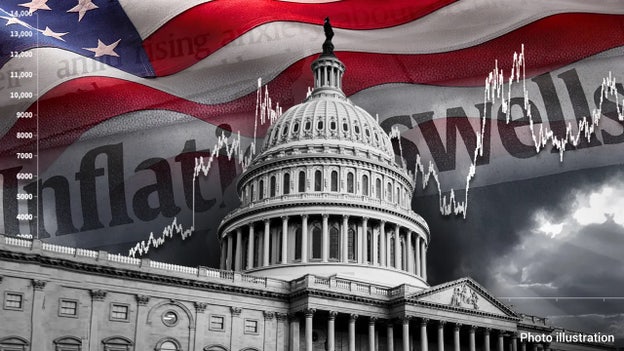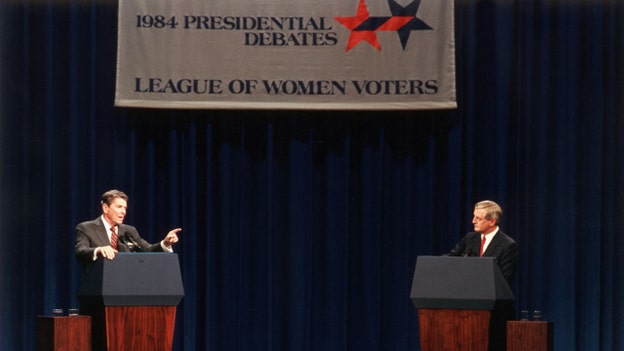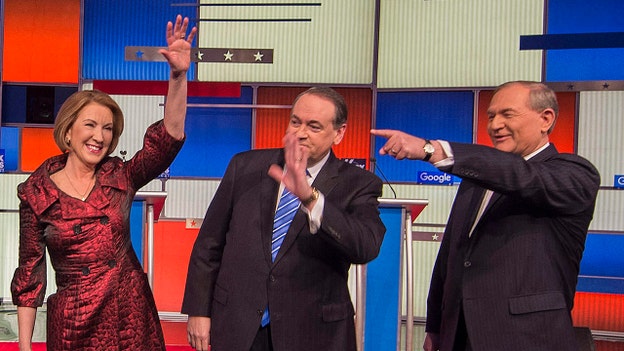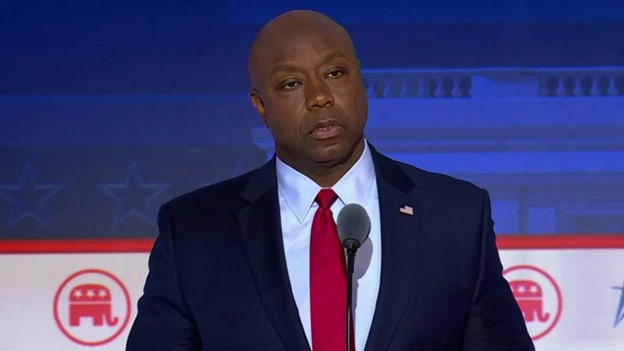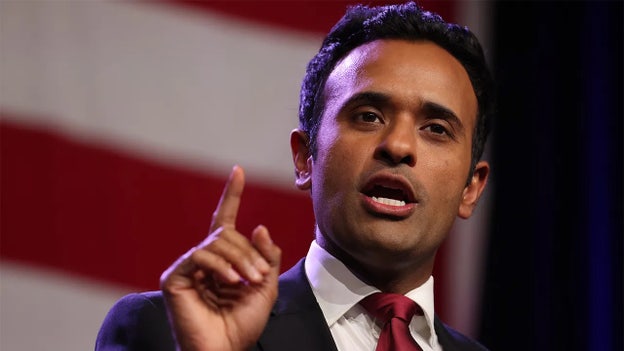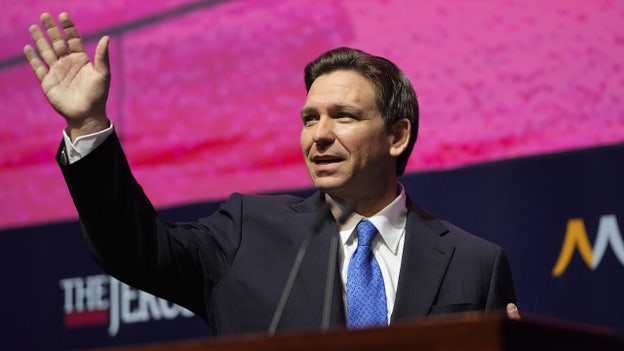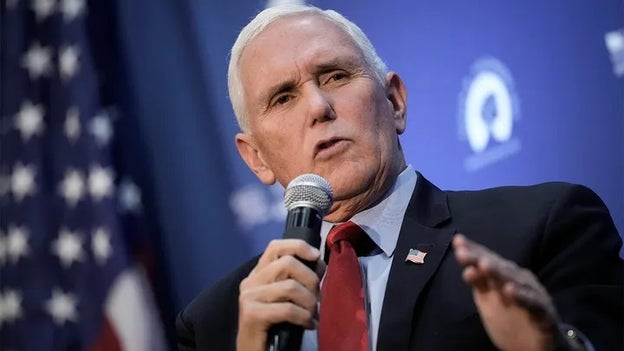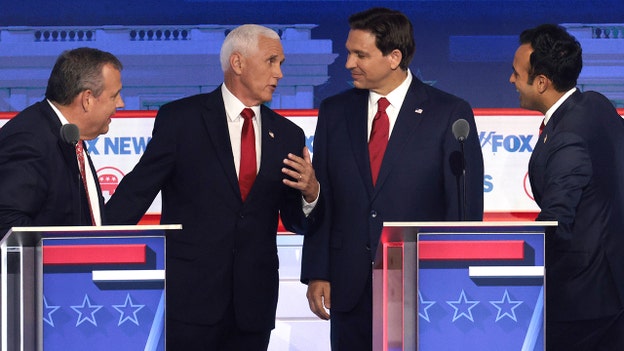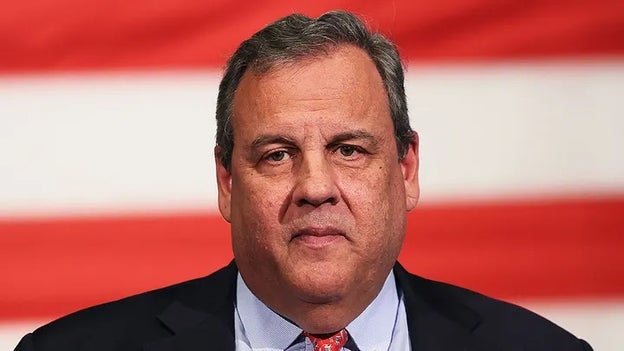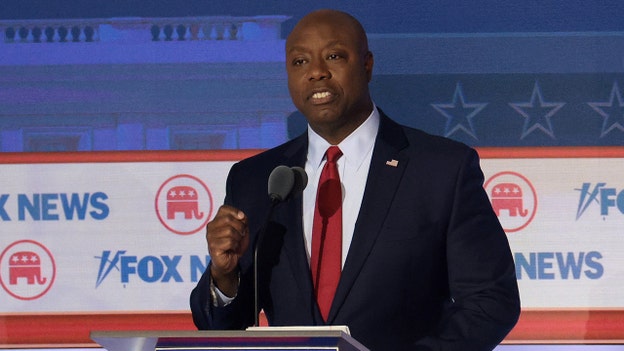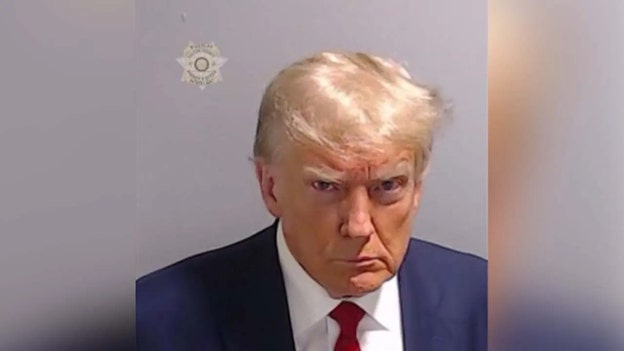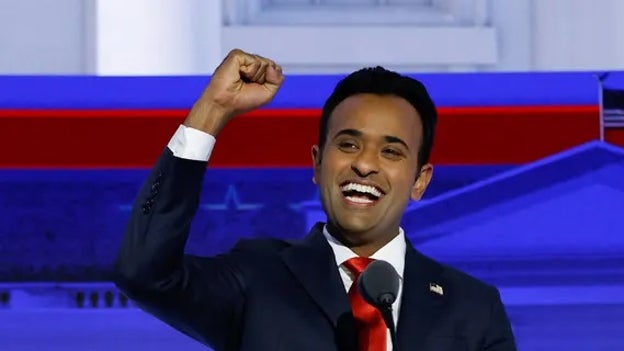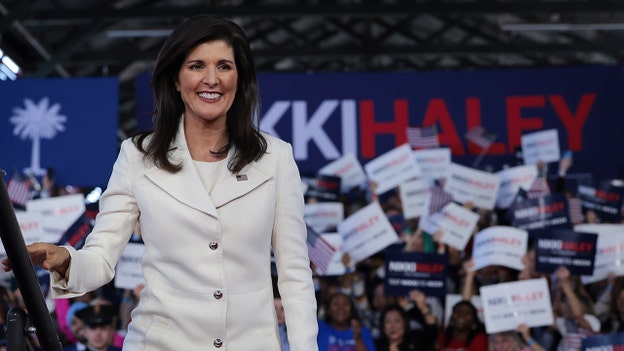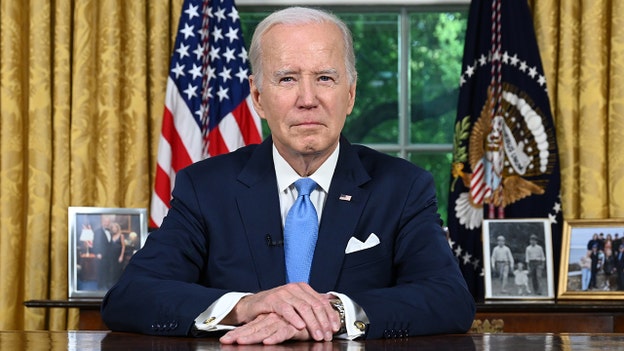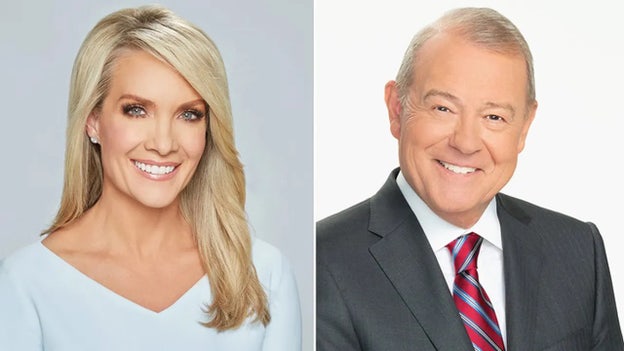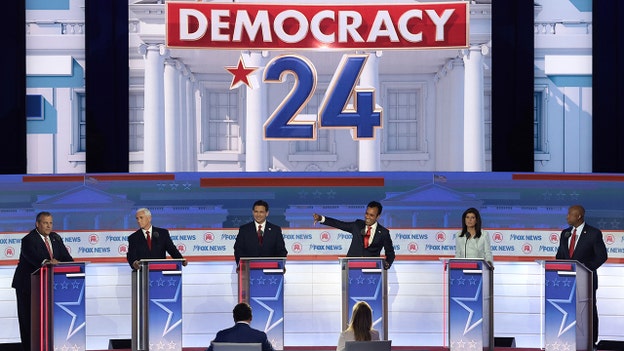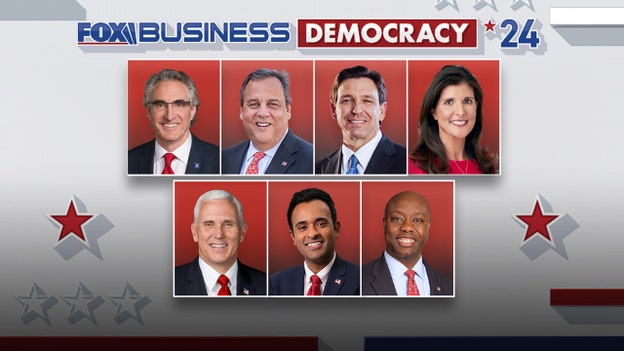Post-debate analysis from spin room; top moments from fiery second GOP debate
The second Republican presidential primary debate of the 2024 election cycle featured seven GOP candidates who met the Republican National Committee's criteria to be on stage. The debate hosted by FOX Business was in Simi Valley, California.
Coverage for this event has ended.
We would like to express our gratitude for your active participation in the coverage of Fox News Digital's reporting on the second Republican presidential primary debate.
The second debate took place on Wednesday, Sept. 27, at the Ronald Reagan Presidential Library and Museum, located in Simi Valley, California.
MISSED THE DEBATE? See all the tense exchanges and memorable moments.
Looking ahead, the third GOP presidential primary debate is slated to occur on Nov. 8 in Miami, Florida. This date coincides with several states conducting off-year elections, adding an extra layer of significance to the event. Candidates gunning for the Republican nomination will confront more challenging eligibility criteria in this upcoming debate.
According to the Republican National Committee (RNC), candidates must achieve a minimum of 3% support in two national polls, or they must secure 3% support in one national poll combined with support from at least two polls originating from the four early-voting states: Iowa, New Hampshire, Nevada, and South Carolina.
While the RNC has yet to officially disclose its media partners for the third debate, there have been reports of discussions between NBC News and Salem Media about potentially co-hosting this pivotal showdown.
Stay tuned for further updates and information regarding this upcoming political event.
Fox News' Maeghan Dolph contributed to this report.
Former Gov. Nikki Haley and Sen. Tim Scott, the two South Carolinians running for the Republican nomination for president, addressed a tense moment they shared toward the end of the two-hour debate.
Early in the debate when discussing government spending, Haley denounced the potential looming shutdown by saying Congress has only approved a budget on time four times in the past 40 years, which prompted pushback from Scott who has been in the U.S. Senate since 2013.
In the final seven minutes, Scott said he'd like to continue the conversation and began taking shots at Haley's record as South Carolina governor and claimed that she spent $50,000 on curtains while she was an ambassador at the United Nations – a decision that was made by the State Department during the Obama administration.
The heated exchange between the two politicians from the Palmetto State was ultimately cut off by moderator Stuart Varney, but both Haley and Scott addressed the moment during post-debate interviews with Fox News Digital.
Haley said the dig at Congress was "not about Tim Scott," but about the legislative body as a whole.
"You look at the fact that Congress has not done anything about the open borders. They’ve spent like drunken sailors. We’re dealing with all of these issues and they continue to – nothing gets fixed. And that’s the issue," the former governor said. "It’s not about Tim Scott. It’s about all of Congress. And now we’re looking at a government shutdown. They need to do their job. The American people are tired of it."
Scott compared the debate to a football game, saying "when you put your uniform on, you leave your friendships on the side."
"Frankly, when she brought up the issue of spending, someone who asked to increase taxes in South Carolina. Someone who called China not a friend but a great friend. Someone who allowed Confucius Institutes to remain on the college campuses throughout South Carolina and brought in billions of Chinese dollars in businesses, I felt like it was my opportunity and responsibility to speak up," the senator said. "And frankly someone who was willing to fight to get 60 votes on Social Security but won’t fight for 60 votes to limit abortions at 15 weeks nationally, it was time for that contrast."
Fox News contributor Mark Penn analyzed the second Republican debate with a Democrat’s point of view.
The former Bill and Hillary Clinton pollster wrote, “President Joe Biden went to sleep after the second Republican debate on Wednesday night knowing that the big event in Simi Valley, California left the GOP no closer to consolidating around a candidate against Donald Trump. The former president remains the likely nominee. In the two-hour debate, Bidenomics came out mostly unscathed.”
The seven Republican candidates mostly discussed immigration, crime, former President Donald Trump and virtually anything other than economic policy.
“They all talked tough, but not that responsibly, and that is the opening for Democrats. Each of these candidates played to conservatives, isolating themselves from the wider constituencies that elect presidents," Penn determined.
California Gov. Gavin Newsom was in attendance at the second GOP primary debate Wednesday night, which was hosted in the Golden State.
After the event, Newsom joined Fox News Host Sean Hannity in the spin room to share his opinions on the candidates' performances and to talk about his upcoming debate with Florida Gov. Ron DeSantis, but not before posting to X, formerly Twitter.
"What a clown show," Newsom wrote, seemingly describing the event as a whole.
He wasn't alone in his opinion as many Democrat officials chimed in with criticism.
"To say this place is a clown show under Republican control is doing disservice to actual clowns," Rep. Jim McGovern said, according to an X post by Punchbowl News founder Jake Sherman.
Sharing Sherman's post, McGovern wrote, "Said what I said."
Los Angeles Mayor Karen Bass also took a shot at the debate, describing it as an example why voters should work to re-elect President Biden and Vice President Kamala Harris.
Fox News contributor Liz Peek offers her take on the biggest winner and the biggest loser(s) from the second Republican debate. Peek writes, “Expectations are everything in life, and they certainly were key to the outcome of the second Republican debate held at the Reagan Library in Simi Valley, California.
The winner of the evening was Gov. Ron DeSantis, for whom expectations were low. The audience was reminded of his achievements and why the Florida governor is running second in the GOP primary polls.
"Helped by low expectations, DeSantis had a good night. He may not bounce in the polls, but he should have stopped the bleeding," Peek wrote.
Offering her take on the evening’s biggest loser, Peek selected the following three candidates:
"With respect, it is time for Mike Pence, Chris Christie (seriously), and Doug Burgum to drop out of the race. Fewer contestants would mean less fighting for airtime and less bickering; that would be a relief."
Fox News Digital's Lynne Jordal Martin contributed to this entry.
Did you miss the second Republican primary debate Wednesday night? Watch the tense exchanges and memorable moments between seven of the GOP candidates running for president at the Ronald Reagan Presidential Library in Simi Valley, California.
"My goal at this point was not to take anyone down on stage, I'm not running against any of those people. I'm running for this country," Vivek Ramaswamy told Fox News Digital in the spin room following a fiery second GOP debate.
The debate, held at the Ronald Reagan Presidential Library and Museum in Simi Valley, California, was the perfect place, according to Ramaswamy, who said he wants to channel the popular former president's ethos.
Ramaswamy said he aims "to unite the conservative movement. That's the first step to uniting this country, and I do think it's going to take somebody from a different generation to reach the next generation."
Ramaswamy took hits from all sides in the second GOP debate as candidates criticized his policies, statements and approach to politics.
In one tense moment, former South Carolina Gov. Nikki Haley said she felt dumber after hearing him speak.
"This is infuriating because TikTok is one of the most dangerous social media apps that we could have and what you've got, I honestly, every time I hear you, I feel a little bit dumber for what you say," Haley told Ramaswamy.
South Carolina Sen. Tim Scott recapped the second debate where he took a more assertive approach against his Republican presidential primary rivals.
Scott sparred with fellow 2024 candidate Vivek Ramaswamy in particular, but told Fox Digital in the post-debate spin room that he didn't have anything personally against the young entrepreneur.
"We shook hands at the end," Scott said.
However, Scott also said he had more questions about Ramaswamy's business connections to China.
"At the end of the day, his connection to the Chinese Communist Party is a big deal -- or at least, his relationship when he was in business was a big deal. We need more information about that, I think it would be helpful."
Scott took criticism from many for his performance in the first Republican debate in August, hosted by Fox News in Milwaukee. Some critics said the South Carolina Republican disappeared into the background.
But at the second debate in Simi Valley, California, hosted by FOX Business, Scott sparred with multiple GOP rivals.
After Ramaswamy said he was the only candidate who was not "bought and paid for," he said that his opponents were "good people."
Scott retorted that he couldn't imagine how Ramaswamy could say they were all "bought and paid for" when he was "just in business with Chinese Communist Party."
Former Vice President Mike Pence's attempted laugh lines fell flat and garnered minimal audience reaction during Wednesday evening's GOP debate.
The former vice president then added that Biden's green energy agenda, which calls for greater adoption of electric vehicles, was to blame for current strife in the U.S. auto industry.
Then, later in the debate, during a back-and-forth with former New Jersey Gov. Chris Christie regarding education policies, Pence jokingly remarked about how he has been sleeping with a teacher for nearly four decades.
"The public school system is no longer run by the public. It is run by the teachers unions in this country," Christie said. "And when you have the president of the United States sleeping with a member of the teachers union, there is no chance that you can take the stranglehold away from the teachers union every day," he continued in reference to President Biden's wife Jill Biden.
"I want to answer the question as well that you just asked because by way of full disclosure, Chris, you've mentioned the president's situation," Pence responded. "My wife isn't a member of the teachers union, but I got to admit, I have been sleeping with a teacher for 38 years — full disclosure. But education is a state and local function."
Like his line earlier, the one-liner largely fell flat with members of the debate audience.
Former South Carolina Gov. Nikki Haley took aim at Florida Gov. Ron DeSantis for his energy policies, including his support for an offshore oil drilling ban in his state, during the second Republican debate Wednesday night.
"Energy security is national security. We need a president that understands we have to partner with our producers and make sure that we have their backs. What you don't need is a president who is against energy independence. Ron DeSantis is against fracking, he's against drilling, he's been against — you did it," Haley remarked before DeSantis interjected.
"You banned fracking, you banned offshore drilling — you did it on federal lands and you took green subsidies that you didn't have to take," she continued.
DeSantis appeared to laugh during Haley's remarks before rejecting that he opposed fracking or drilling on federal lands.
Former New Jersey Gov. Chris Christie criticized President Biden's support for teachers unions, arguing it didn't help that the president is "sleeping with" a union member in reference to first lady Jill Biden, a longtime teacher, during the second Republican debate Wednesday night.
"Let's tell the truth, everybody, about what this is," Christie remarked. "The public school system is no longer run by the public. It is run by the teachers unions in this country. [American Federation of Teachers President] Randi Weingarten and her crew are absolutely strangling — they are taking the worst of their members and defending them rather than advocating for our kids."
"And when you have the president of the United States sleeping with a member of the teachers union, there is no chance that you can take the stranglehold away from the teachers union every day. They have an advocate inside the White House every day for the worst of their teachers, not for our students to be the best they can be. A president of the United States has to take on the teacher's union."
Jill Biden, who has been a teacher for decades, has continued working since President Biden took office in 2021. She is an English and writing teacher at Northern Virginia Community College.
Florida gov. Ron DeSantis dismissed polls showing former President Donald Trump as the commanding front-runner in the race for the 2024 Republican presidential nomination.
What is your mathematical path, Governor DeSantis, in order to try and beat President Trump, who has a commanding and enduring lead in this race?
"Polls don't elect presidents. Voters elect presidents. And we're going to take the case to the people in these early states. We're going to do it in a state by state direction," he said when asked what his mathematical path was to beating Trump.
"[Ronald] Reagan said this is our time for choosing. We're not getting a mulligan on the 2024 election. Republicans have lost three straight elections in a row. We were supposed to have a red wave with inflation at 9%. It crashed and burned," he said.
"Not in Florida, it didn't. We delivered it in Florida. And so, we've got to choose right, we've got to win, and we need somebody who is going to be able to serve two terms," he added.
The U.S. has spent $113 billion on aid to Ukraine so far, with more likely on the way. President Biden announced an additional $325 million in aid last Thursday, following an appeal to Congress by the war-torn nation's president, Volodymyr Zelenskyy. Biden previously requested $40 billion in August.
Funding for Ukraine has created a rift in the Republican Party, made clear by positions held by candidates on Wednesday's debate stage.
Former Vice President Mike Pence and former South Carolina Gov. Nikki Haley have presented themselves as ardent defenders of Ukraine and further extensions of support in the conflict, while entrepreneur and author Vivek Ramaswamy has slammed the idea of further financial assistance as "disastrous."
Florida Gov. Ron DeSantis, meanwhile, stressed in August that further aid would be contingent on Ukraine receiving increased support from other European allies.
Fox News' Kyle Schmidbauer contributed to this report.
Fracking is a technique used across the United States to extract natural gas and oil from rock deep in the Earth.
To extract gas and oil, water, chemicals and sands are blasted into rocks at a high pressure, causing them to crack and the oil and gas to be retrieved.
The process of fracking has allowed the United States to be a leader in natural gas and oil production. Even though fracking has allowed the United States to grow economically and has created millions of American jobs, the process is a controversial one.
One reason why fracking has become a topic of controversy is because of the large volumes of water needed to complete the task. The chemicals used are also of concern to many, especially with spills and leaks that could potentially occur. The process of fracking has brought about questions of environmental and human safety potentially at stake.
During the second Republican presidential primary debate, 2024 presidential hopeful Nikki Haley brought up Ron DeSantis’ handling of fracking in Florida, claiming that the governor banned and stands against fracking and off-shore drilling, which DeSantis laughed off, stating her claims were “totally wrong.”
Fox News' Ashlyn Messier contributed to this report.
EXCLUSIVE: Former President Donald Trump, responding to heated criticisms from his primary opponents during the second GOP debate, said it was "much more important" for him to work to "save" autoworkers Wednesday night than to appear at the debate due to his massive lead in the primary polls, while dismissing Chris Christie’s "Donald Duck" nickname for him.
Trump did not attend the second Republican debate in Simi Valley, California—much to the dismay of his GOP primary opponents, who repeatedly brought him up, stressing that he should have been on the stage to defend the record of his administration.
"I thought it was much more important, considering I have a 56-point lead, for me to be dealing with the UAW and the fact that the Biden Administration is going to destroy their jobs over the next two years by going all electric vehicle," Trump told Fox News Digital in an exclusive interview Wednesday night.
Trump spoke before a crowd of autoworkers in Clinton Township, Michigan Wednesday night, pleading that, if elected, the future of the automobile will be "Made in America."
Diversity, Equity, and Inclusion (DEI) and Critical Race Theory (CRT) are related but distinct concepts frequently discussed in educational and social contexts. They differ in their focus, scope, and objectives.
DEI takes a broader approach, aiming to cultivate diverse, equitable, and inclusive environments across various settings, including schools, workplaces, and communities. DEI initiatives are designed to enhance diversity by increasing the representation of individuals from various backgrounds, encompassing aspects such as race, gender, sexual orientation, and more. These initiatives also strive to ensure equity by addressing systemic disparities and promote inclusion by fostering environments where everyone feels valued and respected.
Importantly, DEI encompasses various facets of diversity, extending beyond race to include efforts that promote equity and inclusion for individuals from all backgrounds and marginalized groups.
CRT, on the other hand, constitutes a specific theoretical framework focused primarily on examining the presence of systemic racism and racial inequalities within legal systems and institutions. Its core mission is to challenge structures and institutions which are assumed to be systemically racist, especially within the legal system. CRT scrutinizes how laws, policies, and societal norms may perpetuate racial disparities.
In summary, DEI adopts a broader and practical approach to create inclusive environments for individuals of diverse backgrounds, particularly race, while CRT is a specific theoretical framework concentrating on the examination of systemic racism within legal systems. While these concepts are often discussed separately, they can intersect in discussions of suspected racial and social inequalities.
Fox News' Maeghan Dolph contributed to this report.
Former U.N. Ambassador Nikki Haley took a sharp jab at Vivek Ramaswamy, telling him she feels "a little bit dumber" after hearing speak about TikTok.
"This is infuriating because TikTok is one of the most dangerous social media apps that we could have ... Honestly, every time I hear you, I feel a little bit dumber for what you say," Haley said after Ramaswamy defended his use of TikTok for campaigning.
Haley went on to rail against the threat of China stealing American's personal information through use of the app, which is owned by Chinese company ByteDance.
"We can't trust you," Haley added.
Ramaswamy responded with a call to have "a legitimate debate," rather than hurling personal insults.
Wednesday night's debate saw fireworks early on as GOP presidential candidates Senator Tim Scott of South Carolina and businessman Vivek Ramaswamy traded shots over Ramaswamy's comment during the first debate.
Scott tore into Ramaswamy during the debate, getting into a raucous back-and-forth with the businessman over his comments in August claiming the other candidates were "bought and paid for."
"I'm the only person on this stage who isn't bought and paid for," Ramaswamy declared last month, which elicited boos.
Ramaswamy pushed back, calling Scott's comments "nonsense" as the temperature between the two spiked amid the spat.
Thousands of United Auto Workers have been on strike against the “Big Three” auto companies, General Motors, Stellantis and Ford.
The union’s contract with the companies ended at midnight on Sept. 14, launching the strike with 13,000 workers walking out of assembly plants. The strike is taking place around the country, with workers walking out of 38 facilities across 20 states.
Some actions strikers are seeking include 36% raises in general pay over a four year period as well as an end to tiers of wages for factory jobs. Automobile manufacturers have said one of the reasons they can’t meet the demands of the workers is because of the expensive feat of transitioning from gas-powered cars to electric vehicles.
So far, there is no end in sight, and strikes are expected to not only continue, but grow, potentially becoming a costly battle for manufacturers.
President Joe Biden joined the picket lines briefly Tuesday and encouraged the strikers in Michigan.
Fox News' Ashlyn Messier contributed to this report.
Florida Gov. Ron DeSantis defended the Sunshine State's African-American history curriculum during Wednesday's second GOP presidential debate, claiming the outrage was due to a "hoax" perpetrated by Vice President Kamala Harris.
Critics of Florida's new curriculum focused on this line, "Instruction includes how slaves develop skills, which in some instances could be applied for their personal benefit."
Harris and left-wing media outlets claimed Florida's curriculum teaches students that slaves in the U.S. "benefited from slavery" — an accusation which DeSantis' administration has fiercely denied.
Asked about the curriculum and the outrage it has received, DeSantis said, "So first of all, that's hoax that was perpetrated by Kamala Harris. We are not going to be doing that."
"Second of all, that was written by descendants of slaves. These are great black history scholars. So we need to stop playing these games," he continued. "Here's the deal. Our country's education system is in decline because it's focused on indoctrination, denying parents' rights. Florida represents the revival of American education. We're ranked number one in the nation in education by U.S. News and World Report."
"My wife and I, we have a six, five and three year old. This is personal to us. We didn't just talk about universal school choice. We enacted universal school choice. We didn't just talk about Parents Bill of Rights. ... We now have American civics in the Constitution, in our schools in a really big way, just like President Reagan asked for in his farewell address back in 1989. Florida is showing how it's done. We're standing with parents and our kids are benefiting."
South Carolina Sen. Tim Scott declared, "America is not a racist country," during a debate segment focused on race and slavery.
"If you want to restore our hope, you've got to restore the family, restore capitalism and put Americans back at work together as one American family," Scott said after pushing back on Florida Gov. Ron DeSantis' defense of his state's school curriculum on slavery.
"I have been discriminated against, but America is not a racist country. Never, ever doubt who we are. We are the greatest country on God's green earth and frankly, the city on the hill needs a brand new leader. And I'm asking for your vote," he added.
Scott came under fire for making a similar statement in 2021.
Sanctuary cities are municipalities or local jurisdictions, typically in the United States, that have adopted policies or practices aimed at limiting their cooperation with federal immigration enforcement agencies, particularly U.S. Immigration and Customs Enforcement (ICE).
These policies vary from one sanctuary city to another, but they often involve limiting information sharing about the immigration status of individuals with federal immigration authorities.
In some cases, local law enforcement agencies in sanctuary cities will not detain individuals solely based on their immigration status unless there is a specific criminal warrant.
Sanctuary cities also at times decline to honor ICE detainer requests, which are formal requests from federal authorities to hold individuals in local custody until ICE can take them into federal custody for possible deportation.
The rationale behind sanctuary city policies is often to build trust between local law enforcement and immigrant communities. Advocates argue that when undocumented immigrants feel safe reporting crimes or cooperating with police without fear of deportation, it enhances public safety.
Critics, on the other hand, contend that sanctuary city policies hinder federal immigration enforcement efforts and may allow potentially dangerous individuals to evade deportation.
The term "sanctuary city" has been somewhat controversial and can be politically charged. The specific policies and practices can differ significantly from one place to another.
Fox News' Maeghan Dolph contributed to this report.
All candidates on Wednesday's debate stage have expressed varying degrees of commitment to completing the wall along the U.S.-Mexico border started during the Trump administration — including figures like former New Jersey Gov. Chris Christie and former South Carolina Gov. Nikki Haley, both of whom were initially critical of Trump's proposal.
Haley pledged to "finish what we started" while gesturing at the wall during an April visit to the border. Christie has also warmed up to the idea, but castigated Trump for failing to deliver on a campaign promise that served as a cornerstone of his 2016 campaign.
Among the more open supporters of the wall's completion is South Carolina Sen. Tim Scott, who committed to seeing out the project on "Fox News Sunday" earlier this week.
Finishing the wall also appears on Florida Gov. Ron DeSantis' long list of immigration crackdowns, alongside ending birthright citizenship and sending U.S. troops to Mexico to combat cartel activity.
The only candidate to come out in staunch opposition to the wall is former Rep. Will Hurd, who was one of the plan's most vocal critics during the Trump administration. Hurd, who failed to meet criteria to participate in either of the first two debates, represented a district that covered much of southwestern Texas and outer San Antonio.
Fox News' Kyle Schmidbauer contributed to this report.
Vivek Ramaswamy says that transgenderism "a mental health disorder" and said it was cruel to "affirm a kid's confusion" about their gender -- in response to a question about parents' rights in schools.
"Transgenderism, especially in kids, is a mental health disorder. We have to acknowledge the truth of that for what it is," the entrepreneur said.
"Parents have the right to know," he went on to say when pushed about parental rights.
"The very people who say that this increases the risk of suicide are also the ones saying that parents don't have the right to know about that increased risk of suicide," he said. "And sorry, it is not compassionate to affirm a kid's confusion, that is not compassion, that is cruelty.
I met two young women, Chloe and Katie, early in this campaign who are in their twenties now regret getting double mastectomies and a hysterectomy. One of them will never have children and the fact that we allowed that to happen in this country is barbaric. So I will ban genital mutilation or chemical castration under the age of 18."
Former Vice President Mike Pence's one-liner arguing President Biden belongs in the "unemployment line" fell flat and garnered a muted audience reaction during the second Republican debate Wednesday night.
"Joe Biden doesn't belong on a picket line, he belongs on the unemployment line," Pence remarked when asked about the ongoing autoworker strike. The line, which Pence appeared to expect to draw an audience reaction, was met largely with silence.
Earlier this month, the United Auto Workers union unleashed its first-ever simultaneous strike against all three of the largest U.S. automakers over wages, a modified work week and pension benefits. The strike, which has since expanded to more factories, has already cost the economy roughly $1.6 billion, according to a recent analysis.
The former vice president then added that Biden's green energy agenda, which calls for greater adoption of electric vehicles, was to blame for strife in the U.S. auto industry.
A growing concern for American families is child care, which is increasingly putting a strain on household budgets. In an attempt to combat expensive child care costs in the country, the Child Care Stabilization Act was introduced.
The Child Care Stabilization Act is a Democrat initiative that was created with the intent to help small businesses providing child care services to stay open amidst financial headwinds.
This plan would act as a replacement to the funding provided by the American Rescue Plan, which has distributed billions of dollars in relief to Americans since it was passed in 2021, due to the financial hardship triggered by the COVID-19 pandemic.
The Child Care Stabilization Act would provide $16 billion per year, for the next five years, to help child care services with operating costs, while seeking to keep care affordable and accessible to the public.
Fox News' Ashlyn Messier contributed to this report.
"Woke culture" is a term that has gained popularity in recent years to describe a social and cultural awareness of issues related to social justice, inequality, and systemic oppression.
The term "woke" means being awake or aware, especially in the context of social and political issues.
In June, Florida Gov. Ron DeSantis told reporters in Iowa that "woke is an existential threat to our society."
DeSantis often touts that Florida "is where woke goes to die."
In contemporary usage, "woke culture" refers to a heightened awareness and consciousness about issues such as racism, sexism, LGBTQ+ rights, environmental justice, economic inequality, and other forms of systemic discrimination. It encompasses an understanding of how historical and ongoing social injustices impact marginalized communities.
People who are considered "woke" are seen as being engaged in advocating for and supporting these causes.
Vivek Ramaswamy, presidential hopeful, told Fox News in May that consumers’ response to Target’s alienation of a large swath of its customer base earlier this year is "totally fair game."
"If a company makes a conscious business decision to alienate a significant portion of its customer base, then it’s totally fair game for its customers to respond accordingly," Ramaswamy said.
Ramaswamy, author of "Woke, Inc.," warned that wokeness is "bad for companies and society at large in the long run."
While "woke culture" is embraced by many as a means of raising awareness and promoting social justice, it can also be a subject of debate. Some critics argue that it can lead to excessive political correctness or "cancel culture," where individuals are excluded for their views. Generally "woke" perspectives are associated with left-wing political and social movements.
The debt ceiling is a legal cap on the amount of money that can be borrowed — and in turn, how much debt can be incurred — by the Treasury.
Its purpose is to allow the federal government to subsidize pre-existing expenditures like Medicare, Medicaid and Social Security, as well as satisfy outstanding interest payments. The debt ceiling cannot be raised to allow new expenditures to be financed.
Bids to raise the debt ceiling are handled like most other pieces of federal legislation, and must pass both houses of Congress before heading to the Oval Office for final approval.
The debt ceiling has been raised 78 times since 1960. Its most recent hike was a provision of the Fiscal Responsibility Act of 2023, which President Biden signed in June, suspending limits on federal debt through Jan. 1, 2025.
Fox News' Kyle Schmidbauer contributed to this report.
Former New Jersey Gov. Chris Christie targeted former President Donald Trump for not taking part in Wednesday's second Republican presidential debate, insisting he may soon be called "Donald Duck."
"I want to look at that camera right now and tell you, Donald, I know you're watching," Christie said. "You can't help yourself. I know you're watching, okay?"
"You're not here tonight, not because of polls and not because of your indictments, you're not here tonight because you're afraid of being on the stage and defending your record. You're ducking these things. And let me tell you what's going to happen. You keep doing that, no one up here is going to call you Donald Trump anymore. We're going to call you a Donald Duck," Christie said, making reference to the iconic Disney character.
Since launching his presidential campaign earlier this year, Chrisite has repeatedly distanced himself from the former president, claiming he is the reason Republicans are not doing better in elections around the country.
GOP presidential candidate Vivek Ramaswamy said that autoworkers striking in Detroit should "picket" in front of the White House.
During Wednesday's second GOP presidential primary debate, Ramaswamy was asked for his response to South Carolina Senator Tim Scott's comments on the United Auto Workers (UAW) strike.
President Biden this week joined the picket line with striking workers pushing for a shorter work week and higher pay.
Ramaswamy talked about his family's experience making ends meet while he was growing up and said that "hardship is not a choice."
"But victimhood is a choice and we choose to be victorious in the United States of America," Ramaswamy said.
"You know what, if I was giving advice to those workers, I would say go picket in front of the White House in Washington, D.C.," he continued.
"That's really where the protest needs to be," Ramaswamy added.
Fox News' Houston Keene contributed to this update.
President Biden is weighing in on tonight's GOP presidential primary debate on X, formerly known as Twitter.
Biden's Twitter account reposted a clip of Florida Gov. Ron DeSantis criticizing former President Donald Trump's record and his decision not to appear at tonight's debate. The clip began after DeSantis had criticized Biden as being "missing in action."
And you know who else is missing in action? Donald Trump is missing in action. He should be on this stage tonight. He owes it to you to defend his record where they added $7.8 trillion to the debt that set the stage for the inflation that we have," the clip shows DeSantis saying.
The GOP civil war won the approval of President Biden.
"Couldn't agree more," he said.
Entrepreneur Vivek Ramaswamy repeated his call to end birthright citizenship for the children of illegal immigrants born in the U.S.
"I favor ending birthright citizenship for the kids of illegal immigrants in this country," he said during a segment of the debate on the border crisis. "Now the left will howl about the Constitution and the 14th Amendment. The difference between me and them is I've actually read the 14th Amendment."
"What it says is that all persons born or naturalized in the United States and subject to the laws and jurisdiction thereof are citizens. So nobody believes that the kid of a Mexican diplomat in this country enjoys birthright citizenship, not a judge or legal scholar in this country," he added.
He went on to say that if the child of a Mexican diplomat doesn't get to enjoy birthright citizenship, "then neither does the kid of an illegal migrant who broke the law to come here."
Ramaswamy first said he would support such a policy change in July.
Former South Carolina Gov. Nikki Haley took aim at the Biden administration Wednesday for its handling of immigration, saying President Biden has "waved the green flag" for those seeking to enter America illegally.
"What happens when Joe Biden waved the green flag it told everybody to come," Haley said. "Now we've seen 6 million people cross the border. We've had more fentanyl that have killed Americans in the Iraq, Vietnam or Afghanistan wars combined. We need to make sure that we are a country of laws."
"The second we stop being a country of laws, we give up everything this country was founded on. So we have to secure the border," she added. "The way we do that is, first of all, defund sanctuary cities. You see what's happening in Philadelphia right now. It's got to stop. We need to make sure we put 25,000 more Border Patrol and ICE agents on the ground and let them do their job."
"I spent 400 miles down that border, and I'm telling you, Border Patrol agents aren't allowed to do their job. Let's go back to remain in Mexico policy instead of catch and release. Let's go to catch and deport," Haley said.
The term "Bidenomics" has been coined by the Biden administration to showcase the president's economic policies.
Biden has frequently used the term to emphasize that his economic agenda is improving the plight of the middle class as it focuses on job creation and infrastructure investments.
Despite his touting of his economic policies, Biden maintains a one of the lowest approval ratings of his presidency when it comes to his handling of the economy.
One recent poll found just 37% of registered voters approved of his handling of the economy.
Fox News' Paul Steinhauser contributed to this report.
Florida Gov. Ron DeSantis says that former President Donald Trump is "missing in action" -- taking a swing at the GOP frontrunner for his no-show at tonight's presidential primary debate.
DeSantis was talking about the economy and inflation, including its relation to the national debt. He took shots at both President Biden and former President Trump.
"Where's Joe Biden? He's completely missing in action from leadership. And you know who else is missing in action? Donald Trump is missing in action. He should be on this stage tonight. He owes it to you to defend his record where they added $7.8 trillion to the debt that set the stage for the inflation that we have."
Trump, who is the frontrunner in current polls, has so far chosen not to participate in debates.
Sen. Tim Scott took the first shot at President Biden at tonight's debate when asked his thoughts on Biden's appearance on the United Auto Worker picket line this week, saying Biden should be at the southern border instead.
Scott, R-S.C., said that the unions want a "four day French workweek" and more money, which he said is "not going to stand."
"Joe Biden should not be on the picket line. He should be on the southern border working to close our southern border because it is unsafe, wide open and insecure, leading to the deaths of 70,000 Americans in the last 12 months because of fentanyl. It is devastating."
The second Republican primary debate will kick off tonight at 9 p.m., live from the Ronald Reagan Library. The pivotal debate for the seven candidates taking the stage will be guided by moderators Dana Perino, Stuart Varney and Ilia Calderón.
Dana Perino is currently a FOX News political commentator as a co-host of “The Five” and “America’s Newsroom.” She also leads a podcast for FOX News Audio called “Perino on Politics.” Perino previously served as White House press secretary under former President George W. Bush.
“As moderators, we'll focus on asking strong questions that matter most to you, the American people. But it is up to the candidates to make their case as to why they are the best one for the job,” Perino said of the role of a moderator in an opinion piece for Fox News Digital.
Stuart Varney is a commentator for FOX Business, where he has worked since the channel's inception in 2007, after making the move from FOX News. He is the host of “Varney & Co.", and is also host of the series “American Built.” He also contributes his business insights on several FOX News Channel programs such as “FOX & Friends” and “Your World with Neil Cavuto.” Before his work with FOX, Varney worked for CNBC and CNN.
Ilia Calderón is an anchor for Univision. She is a co-host of both “Noticiero Univision” and “Aquí y Ahora.” The Colombia-born journalist moderated the final Democratic debate between Joe Biden and Bernie Sanders in 2020.
"We are going to try to highlight the responsibility and importance of the issues that affect Hispanics in the United States," Calderón said in an interview on Univision's Los Angeles channel.
"As long as I stay within the bounds of what the debate is, bringing forward the facts, the figures, the numbers, and asking the questions respectfully, I don't see how things could go wrong," Calderón added.
Fox News' Ashlyn Messier and David Unsworth contributed to this report.
41-year-old Oklahoma City native Mary Millben, a career musician and outspoken conservative, will be singing the national anthem at Wednesday's Republican presidential primary debate at the Ronald Reagan Presidential Library in Simi Valley, California.
Millben initially interned in the White House under George W. Bush, where she regularly performed at White House Christmas parties and other functions. She eventually left politics to pursue a career in music and has performed for Barack Obama and Donald Trump, as well as at a ceremonial swearing-in for Democratic California Rep. Barbara Lee.
Millben has also performed at home and abroad for international leaders, including Indian Prime Minister Narendra Modi and Queen Noor of Jordan.
She was nominated for the Helen Hayes Award, which recognizes outstanding contributions to the Washington, D.C., theatre scene, in 2010.
Fox News' Kyle Schmidbauer contributed to this report.
Presidential primary debates - thanks to the millions of voters from coast-to-coast watching the primetime showdowns - have traditionally instantly impacted both major parties nominating contests.
Scoring a viral moment at a debate can provide rocket fuel for little-known candidates hoping to expand their national name identification and support. Conversely, having a poor debate performance or failing to even qualify for the showdowns often leads to a winnowing of the field of candidates.
"It means a lot for me and every other candidate. It’s going to be the biggest audience any of us have spoken before in a long time," former New Jersey Gov. Chris Christie, who's making his second run for the White House, told Fox News Digital ahead of last month's first debate. "It’s important for people to get to know you, to know who you are, what you want to do for the party and for the country.
"Longtime New Hampshire-based GOP consultant Jim Merrill, a veteran of numerous Republican presidential campaigns, emphasized that initial debates are "enormously important, not only for the top-tier candidates, but for those who have yet to break through. This is the first national opportunity for a lot of these candidates to make an impression on voters."And failing to make the stage at the debates could spell the end for some of the candidates.
Mayor Francis Suarez of Miami, who’s far from a brand name outside of South Florida, told Fox News ahead of the first showdown that "for someone like me, it’s critical" to qualify for the debate.
"After failing to make the stage, Suarez dropped out of the race for the White House.
Longtime Republican strategist Ryan Williams, a veteran of multiple GOP presidential campaigns, had a blunt message for the contenders who don’t earn a ticket to the debates.
"If you can’t make the debate stage, you’re not viewed as a serious candidate. End of story," Williams stressed.
The issue of climate change was brought up as a controversial topic at the first GOP presidential debate in August.
Entrepreneur, author and conservative activist Vivek Ramaswamy denounced the idea as a "hoax" at the first debate, claiming he was allowed to do so because he was the only candidate onstage not "bought and paid for" by outside interests.
Fox News host Howard Kurtz reviewed the first GOP debate and participating candidates. He said, "And Vivek Ramaswamy was a remarkably adept debater, though he kept interrupting, and on substance–from climate change is a hoax to Ukraine is not a priority–he will invite more media scrutiny."
Christie attacked Ramaswamy after Ramaswamy's statement that the "climate change agenda is a hoax.
"President Biden took to X, formerly known as Twitter, to post "Climate change is real, by the way."
While the term "climate change" itself is generally used to refer to upward or downward trends in global temperature over time, the term is often used in political spheres as a label for man-made contributions to global warming.
Climate concerns have led to phaseouts of combustion engines and gas stoves in blue states, as well as state-sponsored investments in controversial green energy expenditures. Similar policy has been pursued by the Biden administration.
Most recently, climate change has reared its head in political discourse after wildfires in Maui, Hawaii, in early August left over 100 people dead and Hurricane Hilary made landfall in Southern California — a once-in-a-generation weather phenomenon in the region.
The U.S. economy's slow recovery from its pandemic slump is often marketed as a win for "Bidenomics" by the president's administration, though the term has been castigated by political opponents and economists as a euphemism for out-of-control spending and inflation.
While inflation rates have fallen from their 2022 peak, year-over-year inflation spikes, as well as price increases on consumer goods, have yet to be reversed.
A second-quarter real gross domestic product increase of 2.1% over last year has also been reported. The American economy is considered the world's largest, and ranks seventh in per capita GDP.
Americans must also contend with other economic issues that have recently made headlines, such as the United Auto Workers strike, unprecedented retail theft in urban centers, and significant retail price hikes.
Fox News' Kyle Schmidbauer contributed to this report.
The stage, with its glaring lights and expectant audience, can be an intimidating place even for seasoned performers -- or politicians. It's entirely normal to feel a little nervous before stepping into the spotlight.
While some individuals may mask their anxiety masterfully, others unintentionally reveal their nervous jitters through their body language by showing the following symptoms.
Fidgeting: Nervous individuals may exhibit restlessness, such as pacing, shifting their weight, or playing with their clothing or objects on stage.
Shaky hands or voice: Visible trembling in the hands or stuttering of the voice can be signs of nervousness.
Sweating: Anxiety often leads to increased perspiration, so you might notice sweat on their palms, forehead, or upper lip.
Freezing: In some cases, extreme nervousness can cause a person to freeze on stage, becoming unable to move or speak.
Blank stares: Brief lapses in concentration or "zoning out" during a performance can be a sign of anxiety.
Avoiding eye contact: Nervous performers may have difficulty maintaining eye contact with the audience, instead looking down or at the ground.
Recognizing these signs can be helpful not only for the audience but also for performers themselves. Acknowledging nervousness is the first step toward addressing it. Many performers find comfort in knowing that stage fright is a common experience and with practice they can conquer their nerves.
Fox News' Maeghan Dolph contributed to this report.
Former President Donald Trump continues to maintain his post as the frontrunner in the Republican race for the White House, but the question of who poses the greatest threat to his candidacy remains undecided.
Last month, the Fox News Power Rankings listed Trump as the frontrunner, noting that he leads between 30-40 points in most national polling and has strong coverage in early states.
Following up as “contenders” the rankings put Florida Gov. Ron DeSantis in second place as the only candidate to post double digit numbers nationally and across early states, with Sen. Tim Scott, R-S.C., as a distant third.
Other candidates are seen as “in the conversation” or “outsiders” and will be hoping to receive a boost from Wednesday’s debate and soon find themselves moving up the rankings as the field realigns in the post-debate days.
A Fox News Poll released earlier this month found that 60% of Republican primary voters back Trump in the primary race, followed by DeSantis at 13% and Vivek Ramaswamy at 11%.
Fox News’ Adam Shaw contributed to this update.
The very first televised presidential debate was between former President John F. Kennedy and former President Richard Nixon in 1960.
The events "shifted how presidential campaigns were conducted, as the power of television took elections into American’s living rooms," the National Constitution Center points out.
Though, since the historical evening in America, there hasn’t always been a consistent flow of showdowns between White House hopefuls to tune in to every election cycle.
In fact, after the inaugural television debate between Nixon and JKF in 1960, it would be 16 years and three presidential election cycles later before another would happen.
In 1964, then-President Lyndon Johnson refused to participate in a debate against then-Republican nominee and Arizona Sen. Barry Goldwater, citing his lead in the polls.
"He feared that his Republican opponent, Barry Goldwater, would exploit the racial turmoil by appealing to the white backlash," according to the National Archives website of the 1964 campaign trail.
Four years later, in 1968, Nixon, still reeling from his not-so-stellar performance in the 1960 debate, refused to debate then-Democratic candidate Hubert Humphrey.
Then, in 1972, Nixon continued that trend, refusing to debate Democratic candidate George McGovern, citing his lead in the polls.
However, since 1976, there have been debates held in every presidential election cycle.
Wednesday night's presidential debate isn't the only big ticket item on the Republicans' agenda this week.
A congressional hearing scheduled for Thursday at 10 a.m. ET will "examine the value" of a potential impeachment inquiry into President Biden, according to House Oversight Committee Chairman James Comer, a Republican of Kentucky.
"Since January, House Committees on Oversight and Accountability, Judiciary, and Ways and Means have uncovered an overwhelming amount of evidence showing President Joe Biden abused his public office for his family’s financial gain," Comer said in a statement.
The hearing comes amid growing scrutiny from the right over the extent of President Biden's involvement in his family's financial dealings — particularly those of his son, Hunter.
A committee informed Fox News Digital on Tuesday that Chinese business partners of Hunter Biden reportedly wired over $250,000 to him, with the president's primary residence listed as the transfer's beneficiary address.
Fox News' Kyle Schmidbauer contributed to this report.
The seven Republican presidential candidates facing off at Wednesday’s second GOP nomination debate aren’t the only White House contenders in California.
President Biden is in San Francisco, for a trio of fundraisers Tuesday evening and Wednesday as he seeks to raise funds for his 2024 presidential campaign before the close of the fiscal quarter.
He stopped at the home of billionaire climate activist Tom Steyer Wednesday. Biden discussed dangers of climate change and addressed other topics at the fundraiser, Reuters reported.
Other fundraisers on Biden's schedule include events hosted by Andrew McCollum, co-founder of Facebook, and another hosted by Liz Simons and Mark Heising, according to Reuters.
The president, while in San Francisco, also met Wednesday with his Council of Advisors on Science and Technology, where he highlighted a new executive order on artificial intelligence designed to seize the opportunities and manage the risks presented by A.I.
The House Oversight Committee will hold a hearing Thursday to "examine the value of an impeachment inquiry" against Biden. House Republicans have been investigating Biden's potential involvement in his family's business dealings, particularly the work Hunter Biden did for foreign entities.
Americans will officially find out who the GOP presidential nominee is at the Republican National Convention next summer in Wisconsin, although the likely nominee might be apparent before then.
Last August, the RNC announced that the 2024 gathering will take place in Milwaukee, Wisconsin at the Fiserv Forum from July 15-18, 2024.
"We are very excited about Milwaukee," RNC chair Ronna McDaniel emphasized in a Fox News Digital interview on the eve of the vote.
"It is a purple state," McDaniel said of Wisconsin. "It is exactly the voters that we are trying to bring into our party, and they have done such a great job. We're excited not only to elect our future president out of Milwaukee as a Republican, but we're excited to showcase a wonderful city and a wonderful state."
At the convention, state delegates will gather to vote and confirm which candidate has acquired the majority of delegates in a process that can sometimes be contentious. Once a candidate is settled on, the party will work together to establish a platform and move on to the next phase in the election cycle against their Democratic opponent.
The GOP candidates go head-to-head at the second Republican debate – sign up now to stream live.
The Ronald Reagan Presidential Foundation and Institute is a 230,000 square foot property nestled in the hills of Southern California that along with hosting events, exhibits, and speakers also serves as the final resting place of former President Reagan.
Construction on the Simi Valley, California property began in 1988 and the Spanish mission style center was dedicated in November 1991.
One of the more popular exhibits at the presidential library is a 90,000-square-foot hangar that is home to an Air Force One plane that Reagan used during his administration. The plane served as the backdrop to several GOP presidential debates in the past.
“President Reagan felt strongly that the institution that bore his name should be a ‘dynamic intellectual forum’ where leaders would debate the future. We are excited to partner with the RNC to host the next Republican presidential candidate debate at the Reagan Library,” David Trulio, President and CEO of The Ronald Reagan Presidential Foundation and Institute, said in a press release.
“Given the challenges and opportunities facing our country, there is no better place for presidential contenders to make their case as they honor the man — Ronald Reagan — who rebuilt America’s military and economy, and changed the world.”
As candidates prepare for tonight’s GOP presidential primary debate, it will not be immediately clear what impact the debate will have on the race. But some past debates have certainly affected public opinion polls.
The candidates will take the stage, hoping to take a step up in the polling, and begin to chip into former President Trump's lead.
But the debates could provide an opportunity for one of the other candidates to gain momentum, or potentially suffer a loss in polling if things go wrong for them. Trump used debates in the 2016 cycle to attack presumed-frontrunner Jeb Bush and increase his own standing. Meanwhile, Sen. Marco Rubio, R-Fla., suffered a tough hit at the hands of former NJ Gov. Chris Christie who accused him of repeating canned lines – although Rubio has downplayed the extent to which the debate hurt him.
On the Democratic side, then-candidate Kamala Harris received a boost after taking aim at her eventual running mate Joe Biden over his record on busing and race in the 2020 cycle. However, she also suffered a grilling from Rep. Tulsi Gabbard over her record as a prosecutor, which was seen by some as dooming her presidential chances.
For those who are less well known by primary voters, they see a key benefit as increased name recognition.
The first debate was also followed by some polling shifts. According to the Fox News Power Rankings , both Vivek Ramaswamy and Nikki Haley received boosts from the first debate.
Debates date all the way back to 1858, though the first was not between two presidential candidates. Former President Abraham Lincoln and Stephen A. Douglas went head to head in a series of debates for Senate seats, according to the National Park Service.
During the election cycle, the opponents formally and politically sparred in seven debates in Illinois. The first candidate spoke for 60 minutes. Then, the opposing candidate spoke for 90 minutes. Finally, the first candidate would speak again, and rebuttal, for 30 minutes to conclude the debate. Douglas kicked off the debates in four of the seven arguments.
The first televised presidential debate in American history between candidates wasn't until September 26, 1960 and included Democratic candidate, John F. Kennedy and Republican opponent, Richard Nixon.
However, in 1956, former Governor of Illinois Adlai Stevenson challenged past U.S. President Dwight Eisenhower to a debate. Former First Lady Eleanor Roosevelt and American politician, Margaret Chase Smith stood in for the men and debated political issues, according to the United States Senate website.
Americans and prospective Republican primary voters will be tuning in this week as candidates take the stage for the second debate of this election cycle.
The second Republican presidential debate is set to be held on Wednesday in Simi Valley, California. The debate will be hosted by Fox Business and Univision from the Ronald Reagan Presidential Foundation and Institute.
Americans are facing rising oil and gas prices, which has fueled criticism of the Biden administration's energy policies from the GOP contenders over the president's moves to restrict oil and gas drilling on federal lands through a series of executive actions.
Oil prices surged recently to their highest levels in 2023 to date following announcements of production cuts by Saudi Arabia and Russia. Gas prices have ticked up as well, causing pain at the pump for consumers.
FOX Business takes a look at the GOP contenders' stances on energy policies ahead of Wednesday night's debate.
The stage is set and we are hours away from the Republican presidential debate in Simi Valley, California, with top presidential hopefuls prepared to tackle the economy, immigration and other key issues.
The bottom line, however, is that the candidates need to shake up the race and cut into former President Donald Trump’s huge lead in the polls. It means that candidates are likely to take aim at Trump directly, as some have done already.
He said he was going to drain the swamp, they didn’t drain the swamp at all,” Florida Gov. Ron DeSantis said this week.
Former NJ Gov. Chris Christie targeted Trump for failing to fully build a wall at the southern border, saying he was partly to blame for the ongoing border crisis at a result.
Christie also criticized Trump -- who is not attending tonight's debate -- for failing to get Mexico to pay for the construction he did complete.
Mike Pence has held several major positions in government—first serving as the congressman from Indiana from 2001 to 2013; then as governor of Indiana from 2013 through 2017; and finally, as vice president of the United States from 2017 through 2021 during the Trump administration.
But did you know Pence is also a lawyer?
Pence attended Indiana University Law School, and spent four years practicing corporate law at an Indianapolis law firm, Stark Doninger Mernitz & Smith, which is currently known as Doninger Tuohy & Bailey, according to Bloomberg Big Law Business.
Pence’s Indiana law license is now listed as inactive, but is in good standing.
Dana Perino, along with Fox Business' Stuart Varney and Univision’s Ilia Calderón will co-moderate the second presidential debate, which will take place at the Ronald Reagan Presidential Library in Simi Valley, California. The debate will be televised on the FOX Business Network (FBN) and Univision from 9-11 p.m. ET on Wednesday.
It's unclear how many primary debates there will be for the 2024 election cycle. The first GOP debate was held in August in Milwaukee, Wisconsin. The second primary debate is Wednesday in Simi Valley, California. The third will be held in Miami, Florida, though it was previously speculated it would be held in deep-red Alabama.
The number of debates held each presidential election campaign cycle varies depending on a number of factors, including whether a sitting president is running for a second-term with no opposition from within their own party.
If that is the case, there are typically only primary debates held for the party currently not holding the White House. An example of this would be the 2020 presidential election when no Republican primary debates were held because then-President Donald Trump faced no serious challenge from another Republican.
However, there were 11 debates over nine months between the candidates vying for the Democratic nomination that cycle.
In 2016, when neither party had a sitting president running for re-election, Republicans held 12 primary debates, and Democrats held nine.
There are typically three presidential debates and one vice presidential debate for the general election, once each party has nominated a candidate.
The most recent exception was in 2020, when there were only two presidential debates due to Trump testing positive for the coronavirus ahead of second debate, and his decision not to appear remotely.
Vivek Ramaswamy has called for the abolition of the H-1B visa, a visa for foreign nationals that has long been a political hot topic when it comes to immigration.
The H-1B is a non-immigrant (or temporary) visa designed for specialty workers in highly-skilled field. To be eligible, nationals need to have a bachelors degree and ”theoretical and practical application of a body of highly specialized knowledge.”
The visa has been used by the tech industry to bring in large numbers of foreigners, particularly from India and China. The industry has long called for more visas to be made available, arguing that it allows companies to be competitive by bringing in top talent from abroad.
Critics have argued that the program is abused in order to replace more expensive American workers with cheaper foreign counterparts, who are in turn tied to their employer by the employment-based nature of their residency in the U.S.
Ramaswamy has promised to end it: “It’s a form of indentured servitude that only accrues to the benefit of the company that sponsored an H-1B immigrant. I’ll gut it.”
Caucuses, which have been around since the 1800s, were once very common in states across the country. But they are increasingly becoming extinct.
In the Republican National Committee's presidential nominating calendar, only a few states hold caucuses. And the Democratic National Committee, in a push to expand voting eligibility access, in recent election cycles has phased out most of their caucuses, replacing them with primaries.
Iowa, which will continue to lead off the Republican Party's 2024 presidential nominating calendar, holds caucuses. And Nevada, which this cycle is scheduled to hold the third contest, has held caucuses in recent cycles. This time around, the state GOP says it will conduct a caucus two days after the state holds its first presidential primary.
A handful of other states will hold Republican presidential caucuses, including in chronological order, Idaho, North Dakota, Utah, and Hawaii.
In the Democratic Party's presidential nominating calendar, Iowa, Hawaii, Wyoming, and Idaho are the only states scheduled to hold caucuses in the 2024 cycle.
Former Trump counselor Kellyanne Conway called on Republican candidates to step it up for the second GOP primary debate during a Wednesday appearance on 'Kudlow.'
"A majority of Americans say they can't afford an emergency bill of more than $1,000, they're living paycheck to paycheck, many of them don't have health insurance, they can't afford utilities, they can't afford the rent, the mortgage. These are serious, everyday issues."
Conway suggested it would be wise for the GOP candidates taking the stage tonight to give voters "a four or five point plan" for how they're going to tackle economic issues.
Certain points Conway believes the candidates need to focus on as they outline their plans are specifics on cutting taxes, deregulatory measures and which agencies they would tackle first, and how to achieve economic growth.
"I think they have to begin with energy," Conway said. "The specifics are: get back to these pipelines, drill baby drill. We have energy under our feet and off of our shores -- made in the USA."
Conway said it's important that candidates state their case and work to deliver at least a "three-part plan to turn the Biden economy around."
"They need to do that tonight," she said.
The candidates who will take part in the second Republican presidential primary debate had to meet a string of requirements before they can continue making their case to the American people.
Unlike the requirements outlined by the Republican National Committee (RNC) to participate in last month's debate in Wisconsin, there were stronger thresholds in place that Republican candidates were required to meet before earning a spot on the stage tonight in California.
To participate in the second debate, each candidate had to have a minimum of 50,000 unique donors to their campaign or exploratory committee, including 200 donors in 20 or more states. The candidates must have also reached 3% support in two national polls or reach 3% in one national poll and 3% in two polls conducted in different early nominating states like Iowa, New Hampshire, Nevada or South Carolina.
Additionally, candidates were also required to sign a pledge in which they agree to support the eventual Republican presidential nominee; agree not to participate in any non-RNC-sanctioned debates for the rest of the 2024 election cycle; and agree to data-sharing with the national party committee.
Candidates were required to meet the debate qualifications 48 hours prior to the beginning of the debate.
GOP presidential hopefuls have a lot riding on the second debate of the 2024 nominating cycle — but some have more to prove than others.
Thanks to her well-regarded performance at the first Republican presidential nomination debate, expect plenty of attention on Nikki Haley at this week's second GOP primary showdown.
"I’ll continue to be myself. I’ll continue to say what I think," the former South Carolina governor, who later served as the U.S. ambassador to the United Nations, said in a recent Fox News Digital interview.
For Sen. Tim Scott of South Carolina, who was far from the loudest voice at last month's debate, Wednesday's showdown at the Ronald Reagan Presidential Library in Simi Valley, California, could be an opportunity to paint contrasts with his rivals for the nomination.
Live from the iconic Ronald Reagan Presidential Library in Simi Valley, California, we're gearing up for the second Republican presidential primary debate, and it's all happening TONIGHT, Wednesday, Sept 27, at 9 pm ET.
I'm Dana Perino , one of your moderators for the evening, alongside the brilliant minds of Fox Business' Stuart Varney and Univision's Ilia Calderón.
After a week spent here at the Reagan Library, my first political memory from the first grade—the inauguration of our 40th President—still resonates. The spirit of Reagan—his vision of a shining city on the hill, his commitment to peace through strength—it's all here, helping to set the tone for Wednesday night’s event.
As moderators, we'll focus on asking strong questions that matter most to you, the American people. But it is up to the candidates to make their case as to why they are the best one for the job.
Here’s a glimpse into what’s on my mind as we prepare to take the debate stage.
Melania Trump, Former President Trump’s wife
Melania Trump served as first lady of the United States from 2017 through 2021.
During her time at the White House, Mrs. Trump created the "Be Best" initiative, which focused on the well-being of America’s children, opioid abuse, and online safety.Since leaving Washington D.C.,
Mrs. Trump has extended the program, and founded "Fostering the Future," a "Be Best" initiative aimed at granting computer science scholarships to children aging out of the foster care system, and giving them the academic foundation needed to secure technology-based jobs so that they can become independent and contributing members of society.
Mrs. Trump is the mother of Barron Trump, who is 17.
Casey DeSantis, Florida Gov. Ron DeSantis’ wife
Casey, is the first lady of the state of Florida.
Mrs. DeSantis spearheaded Hope Florida—a Pathway to Prosperity, Economic Self-Sufficiency and Hope during her time in the governor’s mansion.
She also launched the “Resiliency Florida Initiative,” which is a partnership with professional sports teams and athletes to help to address the stigma surrounding mental health. As part of the initiative, Mrs. DeSantis works with the Florida Department of Education to encourage a campus culture of kindness and empathy through peer-to-peer mentoring and volunteerism; among other initiatives she has launched as first lady.
Mrs. DeSantis is a mother of three—Madison, who is 4; Mason, who is 3; and Mamie, who is 18 months old.
Karen Pence, Former Vice President Mike Pence’s wife
Karen, served as the second lady of the United States from 2017 to 2021.
As second lady of the United States, Mrs. Pence, an artist, worked to bring attention to art therapy and to the sacrifices made by military service members and their families. In January of 2020, Mrs. Pence accepted the honor of being the Lead Ambassador of PREVENTS, which stands for the President’s Roadmap to Empower Veterans and End a National Tragedy of Suicide.
Mrs. Pence also served as first lady to the state of Indiana from 2013 through 2017. There, she brought awareness to many causes and launched more than 40 initiatives. Karen Pence was a school teacher for more than 25 years, and is also an artist, specializing in watercolors of homes and historical buildings.
Mrs. Pence is a mother of three adult children—Michael, Charlotte, and Audrey.
Mary Pat Christie, Former New Jersey Gov. Chris Christie’s wife
Mary Pat, served as first lady to the state of New Jersey from 2010 to 2018.
Mrs. Christie previously was a bond trader on Wall Street.
As first lady of New Jersey, Mrs. Christie helped the state to recover from Hurricane Sandy. She founded a hurricane-relief nonprofit which raised approximately $40 million. Now, Mrs. Christie works in business in the high yield and distressed debt capital markets industry.
According to her bio on “Christie Solutions 55,” she currently serves on the boards of Carrier Clinic, a substance abuse rehabilitation facility in Skillman New Jersey; Seton Hall University Board of Regents, Orexo, a specialty pharmaceutical company headquartered in Uppsala Sweden; and Accelerate 360, a media and distribution company.
Mrs. Christie is a mother of four children.
Michael Haley, Former South Carolina Gov. Nikki Haley's husband
Nikki Haley, former ambassador to the United Nations, is married to Michael Haley.
Mr. Haley is a captain in South Carolina’s National Guard. In 2012, during Gov. Haley’s administration, he was deployed to Afghanistan.
Mr. Haley, in June, began a year-long deployment with the 218th Maneuver Enhancement Brigade in the Horn of Africa.
Mr. Haley is a father of two.
Dr. Apoorva Ramaswamy, Vivek Ramaswamy’s wife
Dr. Apoorva Ramaswamy works as a surgeon in Ohio. She is a laryngologist specializing in swallowing disorders.
Mrs. Ramaswamy received her education at Yale University for her undergraduate degree and Yale University School of Medicine for her M.D. She trained at New York Presbyterian Hospital as a resident, and currently served as an assistant professor at Ohio State University Wexner Medical Center.
Mrs. Ramaswamy is a mother of two sons.
Kathryn Burgum, North Dakota Gov. Doug Burgum’s wife
Kathryn, serves as the first lady of North Dakota. Mrs. Burgum’s priority as first lady is supporting and developing initiatives to “eliminate the shame and stigma of the chronic disease of addiction” across the state.
“She is spreading the word that addiction is a chronic disease and not a character flaw,” the state’s website says.
Mrs. Burgum also plays an active role in supporting the Office of Recovery Reinvented as the chair of the Advisory Council.
Tim Scott's girlfriend
Sen. Tim Scott has never been married. But on the campaign trail this month, the senator said he is dating a “lovely Christian girl." He has not shared her name.
The contentious 2024 Republican presidential primary is driving an uptick in "valuable" new donors to the GOP’s online fundraising platform WinRed, the platform told Fox News Digital.
WinRed, which launched in 2019 to compete with the Democratic Party’s fundraising platform ActBlue, has 1.4 million donors so far this year, and 532,000 — or 38% — are new donors, up three points from 35% during the 2022 election cycle, the platform told Fox News Digital.
The platform attributes the increase in new donors to the Republican National Committee’s strict threshold requirements for candidates to qualify for each debate.
"The numbers are clear that the RNC’s debate requirements are driving significant new donor acquisition," WinRed told Fox News Digital. "This critical threshold is driving cultural change at campaigns, which is crucial for Republicans to surpass Democrats in online fundraising.
The field of candidates expected to participate in the second Republican presidential debate have net worths and professional backgrounds that vary widely.
FOX Business Network has the event slated for Sept. 27, with Stuart Varney and Dana Perino of Fox News Media and Ilia Calderon of Univision asking the candidates questions at the Ronald Reagan Presidential Library in Simi Valley, California.
Forbes has estimated the net worths of many 2024 candidates.
Ramaswamy: over $950 million
Haley: about $8 million
Pence: approximately $4 million
Scott: over $1 million
A source told FOX Business Ramaswamy's fortune was above $1 billion.
Christie has a personal fortune that The Independent reported may be near $5 million. Meanwhile, Ron DeSantis had to disclose his net worth in June, pegging it at $1.17 million in a state financial interests form.
Burgum’s net worth was not immediately clear, though he told Politico last month that he was "not a billionaire" and "never was" one.
Representatives for Christie and Ramaswamy declined to comment on the reported net worths. FOX Business also reached out to reps for the other candidates.
As candidates get set to take the stage at the second Republican presidential primary debate on Wednesday, one key question is likely to be on many voters’ minds: how will the White House hopefuls handle student loan debt?
President Biden announced a proposal more than one year ago to wipe out up to $20,000 in debt per borrower; however, the Supreme Court struck down the plan at the end of June.
Many Republicans, including those on the debate stage Wednesday, have been critical of the president’s plan and welcomed the high court’s decision against Biden.
Fox Business examines each GOP primary debate candidate’s position on student loan debt ahead of the debate.
The second Republican presidential debate is set to be held on Wednesday in Simi Valley, California, beginning at 9 p.m. ET. The debate will be hosted by FOX Business and Univision from the Ronald Reagan Presidential Foundation and Institute.
The second Republican presidential primary debate will take place Wednesday night and last for approximately two hours.
The debate, which will be hosted by Fox Business and Univision, is slated to begin at 9 p.m. ET and carry on until 11 p.m. ET in Simi Valley, California.
FOX News Media’s Stuart Varney and Dana Perino will co-moderate the second debate alongside Univision's Ilia Calderón. The debate is being held at the Ronald Reagan Presidential Foundation and Institute.
Six candidates are taking part in the debate, including Florida Gov. Ron DeSantis, entrepreneur Vivek Ramaswamy, former South Carolina Gov. Nikki Haley, former Vice President Mike Pence, South Carolina Sen. Tim Scott, and former New Jersey Gov. Chris Christie.
Candidates participating must, again, meet criteria for the main stage.
To participate in the second debate, each candidate must have a minimum of 50,000 unique donors to their campaign or exploratory committee, including 200 donors in 20 or more states. The candidates must also reach 3% support in two national polls or reach 3% in one national poll and 3% in two polls conducted in different early nominating states like Iowa, New Hampshire, Nevada or South Carolina.
The Republican and Democratic candidates for Vice-President of the United States typically debate each other one time after the two parties solidify their tickets at their respective conventions in the spring.
During the 2020 election cycle, former Vice-President Mike Pence debated his Democratic counterpart Kamala Harris on October 7, 2020 which was a month before the election.
During the 2016 election cycle, eventual Vice-President Mike Pence debated Hillary Clinton’s partner on the presidential ticket, Virginia Sen. Tim Kaine, in October before the November election.
President Joe Biden is expected to share the presidential ticket with Harris again in 2024 and none of the GOP challengers have yet to say who they will be running with and are unlikely to do so for at least several months.
Wednesday night’s presidential candidate debate will be the second on the GOP side and the third will be held in Miami, Florida in early November.
California GOP Chairwoman Jessica Millan Patterson joined ‘The Big Money Show’ to discuss the GOP’s second presidential debate -- and said that the ongoing crisis at the southern border will be a key issue.
There were more than 230,000 migrant encounters in August, an escalation from the numbers seen in prior months. August's numbers marked the highest ever on record for that month.
In recent days, there have been around 11,000 encounters a day. Republicans have blamed the crisis on the policies of the Biden administration's policies -- specifically its rollback of Trump-era border security and enforcement policies.
The Biden administration has pushed back against those claims, claiming it is working within a "broken" system and needs more funding and comprehensive immigration reform legislation from Congress.
The third Republican presidential nomination debate will be held in Miami, Florida, in early November, an official with the Republican National Committee (RNC) recently confirmed to Fox News.
The first Republican debate was hosted by Fox News and held in Milwaukee, Wisconsin on August 23, in conjunction with the RNC's summer meeting. Milwaukee is the host city for next summer's GOP presidential nominating convention. The second Republican debate - hosted by FOX Business - takes place on Wednesday, Sept. 27, at the Ronald Reagan Presidential Library and Museum in Simi Valley, California.
Word that Miami, Florida would be the location of the third debate followed speculation that it would be held at the University of Alabama in Tuscaloosa. There's no announcement yet from the RNC on their media partners for the third debate, but NBC News and Salem Media are reportedly in talks to host the showdown.
There's no word yet from the RNC on how high it will raise the polling and donor thresholds for the GOP presidential candidates to qualify to make the stage at the third debate.
Former Arkansas Gov. Asa Hutchinson says if he fails to make the stage at the third GOP presidential nomination debate, he’ll consider dropping out of the 2024 White House race.
Hutchinson qualified for last month’s first Republican presidential primary debate, but he was the only one of the eight candidates on the stage at the Fox News hosted showdown in Milwaukee, Wisconsin, who fell short in making the stage at Wednesday’s second debate, a FOX Business co-hosted event at the Ronald Reagan Presidential Library in Simi Valley, California. The third debate will be held in Miami, Florida, in early November.
"If I don't make that, we'll reevaluate where we are," Hutchinson told reporters on Wednesday.
When asked for clarification if his response meant he would consider dropping out, Hutchinson answered, "Sure."
The Republican National Committee, which is organizing the GOP nomination debates, has mandated that candidates reach certain polling and donor thresholds to make the stage at the showdowns. The criteria for the second debate was 3% in the polls and 50,000 individual donors. The thresholds rise to 70,000 donors and 4% in the polls for the third debate.
"Four percent shows progress, and it will show that we're passing others as well," Hutchinson said. "That's the goal that I have. If I don't make that, we'll reevaluate where we are."
Hutchinson added, "I understand that the RNC and the media are trying to reduce the number of candidates, but I measure success based on the response I receive in early primary states like Iowa and New Hampshire. My goal is to increase my polling numbers to 4% in an early state before Thanksgiving. If that goal is met, then I remain competitive and in contention for either Caucus Day or Primary Day."
"I've set as a goal to make sure that we have 4% in the polls by Thanksgiving," he reiterated on Wednesday. "I expect to be able to do that through my campaigning in Iowa, New Hampshire, some of the early states. This is still a reach. It's still a retail political environment. And if I'm not in the debate today, I'll be in Iowa taking it straight to the voters."
Fox News' "America's Newsroom" Co-Anchor and Co-host of "The Five" Dana Perino shared her "hype" song on TikTok ahead of the second Republican presidential primary debate.
"Important debate prep call or hype song break?" Perino wrote on a TikTok while listening to a Dierks Bentley song.
The debate will take place at the Ronald Reagan Presidential Library and televised on the FOXBusiness Network (FBN) and Univision from 9-11 p.m. ET.
The White House contenders, in alphabetical order, are North Dakota Gov. Doug Burgum, former New Jersey Gov. Chris Christie, Florida Gov. Ron DeSantis, former South Carolina Gov.Nikki Haley, former Vice President Mike Pence, biotech entrepreneur and political commentator Vivek Ramaswamy, and Sen. Tim Scott of South Carolina.
An RNC press release from early June stated that "qualified candidates will be placed on stage according to polling, with the highest polling candidate in the center."
"The Republican Party is united around one common goal - Beating Biden - and there is no better place to showcase our conservative vision for the future than the Ronald ReaganPresidential Library," RNC Chairwoman Ronna McDaniel said.
The second GOP presidential primary debate of the 2024 cycle will take place on Wednesday evening and will allow the top candidates hoping to pick up their party’s nomination for president to ramp up their efforts to win over primary voters.
While campaigning for the job of going head-to-head with President Biden in next year’s presidential election is already underway, Wednesday night’s debate -- live on Fox News Media platforms -- will give the candidates an opportunity to lay out their case to Republicans voters for why they would make the best choice for the nomination.
It will also allow the candidates to go head-to-head with one another, challenging other’s positions and records and contrasting them with their own.
Former Vice President Mike Pence, Florida Gov. Ron DeSantis, former New Jersey Gov. Chris Christie, Sen. Tim Scott of South Carolina, former South Carolina Gov. Nikki Haley and entrepreneur Vivek Ramaswamy will be on the stage for the debate.
Former President Donald Trump has said he will not appear on the debate stage, which will therefore give candidates a greater chance to step into the spotlight in a race that, so far, has often been dominated by the former president.
The debate is taking place in Simi Valley, California at the Ronald Reagan Presidential Library.
Presidential debates are not typically open to the public. Specifically, the second GOP presidential debate in Simi Valley, California at the Ronald Reagan Presidential Library & Museum is closed to general admission.
"Due to limited seats within our venue, there will not be tickets available for the general public," reads Reagan Foundation website.
The debate will be hosted by FOX Business' Stuart Varney, Fox News' Dana Perino and UNIVISION’s Ilia Calderón. The backdrop for the debate will be the historic Air Force One Pavilion.
So, who is attending the event and is it possible to attend a presidential debate?
Participating candidates, including Ron DeSantis, Nikki Haley, Vivek Ramaswamy and others, are handling tickets to the first GOP debate of the 2024 presidential election cycle. Additionally, the RNC, FOX Business, Rumble, Univision, and the Ronald Reagan Presidential Foundation and Institute have partnered to host the event.
The best way to attend a future presidential debate is to know someone distributing tickets.
Conservative groups across the country will host watch parties the evening of the debate locally in Simi Valley and other parts of California, around Texas, Illinois and more.
The second Republican presidential primary debate is set to begin in just hours in Simi Valley, California where seven presidential hopefuls will begin battling, hoping to seize momentum in the race for the GOP nomination.
The debate, which will take place at the Ronald Reagan Presidential Library, will be televised on the FOX Business Network (FBN) and UNIVISION from 9-11 pm ET.
The White House contenders, in alphabetical order, are North Dakota Gov. Doug Burgum, former New Jersey Gov. Chris Christie, Florida Gov. Ron DeSantis, former South Carolina Gov. Nikki Haley, former Vice President Mike Pence, biotech entrepreneur and political commentator Vivek Ramaswamy, and Sen. Tim Scott of South Carolina.
Standing at the center of the stage will be DeSantis, with Haley and Ramaswamy on either side of him.
Christie and Scott will be standing alongside Haley and Ramaswamy. And standing on the wings of the debate stage will be Burgum and Pence.
An RNC release from early June stated that "qualified candidates will be placed on stage according to polling, with the highest polling candidate in the center."
The Mike Pence campaign says expect more of the same from the former vice president at Wednesday night’s second Republican presidential nomination debate.
An aggressive Pence grabbed the most speaking time at last month’s first debate, a Fox News hosted showdown in Milwaukee, Wisconsin.
Pence campaign spokesman Devin O’Malley highlights that the former vice president is a “true fighter” who’s “been in the fight for the conservative movement for the last 30 years.”
“I think you’ll probably see more of that tonight” O’Malley emphasized as he looked towards Wednesday’s debate, a Fox Business co-hosted event at the Ronald Reagan Presidential Library in Simi Valley,
Earlier this month Pence argued that former President Donald Trump "and some of his imitators in the Republican primary" are walking away from core conservative values advocated by Reagan. The late president’s seen as an icon of the conservative movement three and a half decades after he left the White House.
Reagan’s legacy is likely to tower over the debate, the fifth held at the late president’s library since the 2008 election cycle.
“Essentially the entire context of the debate… is about Ronald Reagan and his legacy and so I think we’re going to draw that contrast and we’re going to talk about the need to continue that legacy and to solve the problems,” O’Malley highlighted. “It’s the Reagan policies and the traditional conservative policies that are going to get us out of this mess and that’s what Mike Pence embodies as the most qualified and most conservative candidate in this race.”
Pence, due to his position in the polls in comparison to the other contenders, will be standing on the wings of the debate stage that will have seven podiums. But O’Malley discounted any potential negative impact from Pence’s debate stage position.
“Mike Pence is going to clearly articulate….what he offers to the voters and the debate position doesn’t matter at all,” he emphasized.
A lot of people ask me… Do the debates matter? My response is: absolutely. Especially when it comes to the primaries.
Communication experts Mitchell McKinney and Benjamin Warner analyzed surveys of general election and primary debate viewers between 2000 and 2012 and discovered that 35% of primary election viewers changed their candidate preference as a result of a debate.
That is certainly enough to make a difference even when the numbers look as they do today for Republicans.So who wins the night at the Reagan Library on Wednesday? And how do they do it?
My response: he (or she) who frames the debate, wins the debate. And, right now there is only one candidate who is framing the debate in terms that matter most to voters.
Let me explain. The way you talk about something has the power to shape how people perceive it. That is what we call framing. In this case, it is the way each candidate positions themselves as the next Republican candidate for the president of the United States. Simply put, it helps us fill in the blank to a sentence like this "if I am voting for XYZ candidate because they are XYZ."
Lee Carter is the president and partner of maslansky + partners, a language strategy firm based on the idea that "it’s not what you say, it’s what they hear" and author of "Persuasion: Convincing Others When Facts Don’t Seem to Matter."
Notable women associated with politics have emerged center stage at debates throughout history. This year, Nikki Haley is the only woman qualified to participate in the first and second Republican primary debates.
In 1984, Geraldine Ferraro, American politician who served in the House of Representatives, became the first woman to participate in a vice-presidential debate. She was the Democratic Party's nominee for Vice President, running alongside presidential candidate Walter Mondale.
Ferraro appeared opposite George H. W. Bush at the debate.
In 2008, Alaska Governor Sarah Palin participated in the vice-presidential debate against current President Joe Biden. She ran alongside presidential candidate John McCain.
During the debate Palin shook Biden's hand and said, "Nice to meet you."
She added, "Hey, can I call you Joe?"
In 2016, Hillary Clinton became the first woman to be a major party's nominee for President of the United States. She participated in the presidential debates against Republican candidate Donald Trump.
In 2019, Kamala Harris ran for president, participating in presidential primary debates for the Democratic Party. She became the Democratic Party's nominee for vice president in 2020, running alongside presidential candidate Joe Biden.
Kamala Harris also made history as the first woman of color to be on a major party's presidential ticket.
These women have played significant roles in shaping the landscape of U.S. elections.
Russia's invasion of Ukraine, and particularly America's support of Ukraine's defense, have become hotly debated topics in the 2024 GOP presidential primary.
Ron DeSantis faced intense criticism earlier this year after told Fox Nation's Piers Morgan the U.S. should not escalate its involvement in the Russia, Ukraine conflict and that more American weapons or ground troops would be a "mistake." However, he called Russian President Vladimir Putin a "war criminal" and "basically a gas station with a bunch of nuclear weapons."
Vivek Ramaswamy recently said Ukraine was extorting the U.S. for aid, and has advanced proposals to freeze the current battle lines in a ceasefire he says would make America safer.
Other Republican candidates, however, are more in line with the prevailing sentiments of both Democrats and Republicans.
During a radio interview in March with New Hampshire Today, Mike Pence said, "I strongly support continuing to provide the Ukrainian military the resources necessary to repel that Russian invasion. I truly do believe that we are the arsenal of democracy, and we are the leader of the free world and continuing to stand with Ukraine to support their fight. They are consistent with the conservative principals first articulated by Ronald Reagan."
In a March statement, Nikki Haley said, "We should not send American troops. We should not send cash or blank checks. Along with our allies in Europe and elsewhere, we should provide conventional weapons that enable Ukraine to effectively stop the Russian invasion and occupation of its land."
Former Governor of South Carolina, Nikki Haley, is the daughter of legal immigrants and revealed her plan for immigration in March. She blames the border crisis on both Republicans and Democrats. Haley wants to hire 25,000 more border patrol agents, reinstate the Remain in Mexico program and Title 42 and more.
Tim Scott communicated earlier this month that he would finish the border wall Donald Trump started during his presidency if elected himself.
Vivek Ramaswamy, in an interview with Sean Hannity, said he believes the U.S. should use its own military to secure the southern border and that building a wall is not enough.
Florida Governor Ron DeSantis is no stranger to pro-border security. In July, DeSantis signed Senate Bill 1718 which requires employers in Florida to use the E-Verify system for employees. Drivers licenses with limitations from Connecticut, Delaware, Hawaii, Rhode Island and Vermont will no longer be recognized in the Sunshine State.
In September 2022, DeSantis sent two planes of illegal immigrants to Martha's Vineyard as "part of the state’s relocation program to transport illegal immigrants to sanctuary destinations."
Fox News contributor Mark Penn, a former Democratic strategist who worked for President Bill and Hillary Clinton's presidential campaigns, said Nikki Haley is the candidate to watch in tonight's Republican debate on FOX Business.
"The Republican field enters the second debate with some unexpected changes since August’s first debate: Donald Trump's national poll numbers have surged ahead of Joe Biden while Ron DeSantis has continued to fade, and Nikki Haley has emerged as the non-Trump candidate with the most momentum," Penn wrote in an op-ed for FOX Business.
"The big questions for the second debate are: Will the field shrink fast enough to have a chance to catch Trump? Do any of the candidates have a real plan for renewing America and its economy or are they going to just attack each other? Can DeSantis revive his campaign? Will Haley have another win and sustain her momentum?
"The breakouts of the first debate were Vivek Ramaswamy and Haley. But Ramaswamy looks more and more like a one-debate wonder. In contrast, Haley has been consistently coming up in the key primary states. She has emerged as the real winner of the first debate and while her numbers are still small, they are growing quickly."
Read more from Mark Penn, the chairman and CEO of MDC Partners and managing director of the Stagwell Group.
The seven Republican presidential primary candidates taking the debate stage in Simi Valley, California, Wednesday night are expected to discuss a wide variety of issues as they attempt to further convey their messages to voters.
Florida Gov. Ron DeSantis, entrepreneur Vivek Ramaswamy, former South Carolina Gov. Nikki Haley, former Vice President Mike Pence, South Carolina Sen. Tim Scott, former New Jersey Gov. Chris Christie and North Dakota Gov. Doug Burgum have qualified for the second GOP debate and will take questions from FOX News Media’s Stuart Varney and Dana Perino, as well as Univision's Ilia Calderón.
The Republican candidates are expected to field questions related to the economy — specifically related to inflation, social security, and the deficit; national security — China and Beijing’s ambitions to take Taiwan, as well as the ongoing war between Russia and Ukraine, issues related to NATO; immigration and border security; defense; social issues; the Biden presidency; and why they are best to tackle the issues for the American people.
The debate will be hosted by Fox Business and Univision from the Ronald Reagan Presidential Foundation and Institute.
Fox News’ Brooke Singman contributed to this update.
Former Utah Republican Congressman and Fox News contributor Jason Chaffetz said the Republican candidates at Wednesday's FOX Business debate need to discuss the $33 trillion national debt.
"The most pressing problem in America right now is the one no one wants to talk about. As Republican candidates (minus former President Donald Trump) line up to debate on Wednesday night, they may be asked about the ballooning national debt and the resulting drag on the economy. They may offer a few solutions that nibble at the edges. But the real truth is ugly, painful, and unpopular," Chaffetz wrote.
"Candidates understand that the American people want the debt burden reduced. But we don’t want to hear the truth of what it would take to actually do it. How will the candidates on the debate stage Wednesday night straddle that line in a world where they’re being asked both to solve the problem and to garner votes and do it in less than 90 seconds? It will be the most difficult needle to thread.
"Since we hit the $33 trillion debt threshold, we are adding over $800 million an hour in new debt. We’re accumulating more than $2 billion a day in interest on that debt. And thanks to the most recent debt ceiling bill, there will be no cap on that debt until January 2025. There is no greater threat to our future freedom and prosperity."
Read more from Jason Chaffetz.
Seven of the qualifying Republican presidential candidates are set to square off in the second GOP primary debate Wednesday, and the economy is expected to take center stage as Americans continue to grapple with high prices, rising interest rates, a housing affordability crisis, depleted savings and fears of a possible recession.
The candidates have plans to tamp down inflation, fight back against China, unleash American energy, grow the GDP and cut taxes.
All are promising to rein in spending and cut regulations, but to varying degrees. Some want to get rid of federal agencies, and others are pushing for reforms to welfare and entitlement programs like Social Security. Several want to promote the trades over costly college degrees that leave students burdened with debt.
Ahead of the debate slated for 9 p.m. ET, FOX Business provides a snapshot of each candidate’s agenda and their priorities as voters assess their options against President Biden’s “Bidenomics.”
Health care costs are a significant issue facing American families and the federal government, with Republican presidential contenders having an opportunity to address those concerns at Wednesday night’s debate on FOX Business.
During the first two years of the Trump administration, Republicans had unified control of Congress and the White House and attempted to pass legislation to repeal and replace ObamaCare. Although the House managed to pass its version of a health care reform bill, Senate Republicans were unable to coalesce enough support around a proposal of their own and the reconciliation process failed.
Health care costs have been on the rise for individuals and businesses in recent years, with the latest forecasts from benefit consulting firms projecting that health care costs will see their biggest jump in a decade in 2024. Medicare alone is one of the largest sources of federal spending, and its hospital trust fund is set to be depleted 10 years from now, which could result in an automatic cut of 10% in hospital spending if Congress doesn’t shore it up.
The second Republican presidential debate is set to be held on Wednesday, Sept. 27 in Simi Valley, California. The debate will be hosted by FOX Business and Univision from the Ronald Reagan Presidential Foundation and Institute.
Republican candidates all maintain that they are pro-life, but how they approach the topic politically varies.
In May, Nikki Haley vowed to sign a federal abortion ban if elected president -- but she acknowledged a ban of that kind would be difficult to pass without more Republicans elected into the Senate.
During the first GOP debate in August, Haley said: "I think we are all pro-life but what I would love is for someone to ask Biden and Kamala Harris are they for 38 weeks, are they for 39 weeks or are they for 40 weeks. That is what the media needs to be asking."
During the August debate, North Dakota Gov. Doug Burgum said that he does not support a federal ban on abortion.
"I'm a pro-life governor of a very pro-life state, and this issue is, of course, very important. But I am on the record, and I stand behind, that we should not have a federal abortion ban. We should not. And the reason why we shouldn't is very simple: It's the 10th Amendment in the Constitution," Burgum said.
In June, Mike Pence vowed to push a national 15-week abortion ban if he is elected president.
In April, Tim Scott revealed his support for a 20-week federal ban on abortion and said he would potentially consider a 15-week limit.
In April, Ron DeSantis signed a bill to ban abortion in Florida after six weeks of pregnancy with exceptions for victims of rape and incest. In August, DeSantis said in an NBC News interview he would not support punishments for women who violate abortion bans.
"I think a lot of these women, you know, are in very difficult circumstances. They don’t get any support from a lot of the fathers," DeSantis said in the interview.
Vivek Ramaswamy believes abortion laws should be left to the states to decide. But, he believes states should adopt a "pro-life stance."
Don’t miss the second Republican presidential primary debate. Sign up now to stream.
Candidates will take to the debate stage after a busy September on the campaign trail
Former President Donald Trump remains the top candidate, with few signs he will be knocked off his perch any time soon.
As a result, other candidates have been continuing to take aim at the frontrunner. Former NJ Gov. Chris Christie promised to follow Trump around the country and “confront him.”
Abortion has remained a top issue for candidates, and is likely to stay that way after Trump called Florida Gov. Ron DeSantis’ 6-week abortion ban a “terrible mistake.” DeSantis has stood by the restriction amid the criticism from Trump.
Meanwhile, the field has already started to shrink. Miami Mayor Francis Suarez, who was not at the first debate, suspended his presidential campaign.
Separately, candidates flocked to Iowa to the Faith and Freedom Coalition’s annual fall banquet to make their case to voters last week. It’s a sign that with Labor Day over, voters are starting to pay more attention to their candidates and the race could soon start really heating up.
Fox News’ Paul Steinhauser contributed to this post.
During a 1960 presidential debate between Richard Nixon and John F. Kennedy, Nixon appeared shifty and was excessively sweating while JFK remained calm. Whether Nixon lost the election to JFK due to his body language is still probed today.
In 1984, during a debate Ronald Reagan said, "I will not make age an issue of this campaign. I am not going to exploit, for political purposes, my opponent's youth and inexperience," of former VP to Jimmy Carter, Walter Mondale. Reagan’s blunt remark earned him cheer and laughter from both the crowd and Mondale.
During a debate in 1992, when asked a question by an audience member, Bush Sr. checked his watch before answering and seemed to stumble through a response.
In 2012 during a debate between Barack Obama and Mitt Romney, the latter made a claim that the U.S. Navy was the smallest it had been since 1917.
Obama quipped at his opponent "You mentioned the Navy, for example, and that we have fewer ships than we did in 1916. Well, Governor, we also have fewer horses and bayonets, because the nature of our military's changed."
Each election cycle, presidential hopefuls line a debate stage, hoping to pitch their messages and their vision for the country to the American people.
In 2016, 17 Republican candidates were vying for the GOP nomination. Of course, former President Trump emerged the winner, and stole the show at the first Republican primary debate in August 2015.
But some candidates missed the mark—and their presidential campaigns have since been forgotten.
Remember former Virginia Gov. Jim Gilmore? He ran for president in 2016. So did former Sen. Rick Santorum of Pennsylvania; former Louisiana Gov. Bobby Jindal; businesswoman Carly Fiorina; former New York Gov. George Pataki—among others. But does anyone remember their debate performances?
Many of those so-called “undercard” debate participants dropped out of the race early in the 2016 primary calendar.
Similarly, in 2019, 20 Democrats took the debate stage to battle for the Democratic nomination to compete against Trump in 2020.
Sen. Kirsten Gillibrand of New York; former Rep. John Delaney of Maryland; Sen. Amy Klobuchar; Sen. Michael Bennet among more than a dozen others took the debate stage. But does anyone remember if they managed to get a standout moment?
Determining a loser in any debate is difficult to do, but there have been some indicators about which candidates were weakened by their performance in the first GOP debate.
According to the Fox News Power Rankings, Sen. Tim Scott, R-S.C., has dropped two places since the August debate hosted by Fox News' Bret Baier and Martha MacCullum.
The first debate did him no favors, with only 2% of voters saying he exceeded expectations, according to a Wall Street Journal poll. There are signs that his support in the early states is weakening.
Meanwhile, former Vice President Mike Pence had a fiery debate performance but is struggling to gain a boost from it. He remains in sixth place in the power rankings.
Former President Donald Trump did not get a boost from his debate performance, given he did not attend. However, he remains top of the standings, meaning there is little indication it has hurt him either.
Winners of political debates are often subjective and intensely debated, but some candidates appeared to get a bump in their bid for the White House following the first clash between Republican rivals.
Fox News’ Power Ranking moved Vivek Ramaswamy up into third place this week continued improvement in polling. Ramaswamy appeared center stage during the political showdown opposite Florida Gov. Ron DeSantis.
According to voters in a Wall Street Journal poll, Ramaswamy performed best out of any candidate at the first debate. Thirty-five percent of people who watched or heard about the event said he "exceeded expectations.”
Nikki Haley, former Governor of South Carolina, also received a boost from the debate, with 27% of voters in the same poll saying she exceeded expectations in Milwaukee.
Fox News host Howard Kurtz observed that the pundits got several things wrong after the debate in Milwaukee.
"Nikki Haley came off as sensible and reasonable–but passionate on foreign policy–yet that may not be what the party wants this cycle.
"And Vivek Ramaswamy was a remarkably adept debater, though he kept interrupting, and on substance–from climate change is a hoax to Ukraine is not a priority–he will invite more media scrutiny."
Republican National Committee Chairwoman Ronna McDaniel said the economy will be the focus of tonight's Republican primary debate in California.
"I think the economy is key, it's front and center in so many Americans' minds as they're depleting their savings. There's record drawdowns on 401(k)s, people are living paycheck to paycheck," McDaniel said on "Varney & Co." Wednesday morning.
A recent Fox News survey found that inflation worries are not subsiding, as 91% are concerned about higher prices. It was 90% in May and March. The poll also found 8 in 10 Americans are concerned about housing costs, and almost as many about paying their bills.
McDaniel said families are facing a "death by one thousand financial cuts" with higher gas prices, inflation and fees in the Biden economy.
"That's why three out of four Americans say that they feel like the economy is not working for them. 63% say this country is headed in the wrong direction," she added.
Fox News' Dana Blanton contributed to this post.
The latest Fox News poll has 60% of Republican primary voters supporting former President Donald Trump for the GOP nomination—that’s up from 53% in the last survey in August.
The only other candidates to receive double-digit support are Florida Gov. Ron DeSantis at 13% and businessman Vivek Ramaswamy at 11%.
Former ambassador to the United Nations and former South Carolina Gov. Nikki Haley sits at 5%, with former Vice President Mike Pence and Sen. Tim Scott of South Carolina at 3% each. Former New Jersey Gov. Chris Christie is polling at 2%, with the remaining GOP candidates receiving less than 1%.
And according to a new Washington Post/ABC poll from over the weekend, Trump is currently leading President Biden by 10 points in a head-to-head general election survey among voters. The poll said if the 2024 presidential election were held today, Trump would win 52% to 42% over Biden.
Meanwhile, Biden's approval rating sits at 37%, according to the poll, while 56% of respondents actively disapprove of his presidency.
What do voters want to hear from the Republican candidates at tonight's presidential primary debate on FOX Business?
A panel of voters joined "FOX & Friends" on Wednesday to discuss their expectations ahead of showtime at 9 p.m. ET.
Nicole Olson, an Iowa voter, said she expects former U.N. ambassador and South Carolina Governor Nikki Haley to face the brunt of attacks at the debate.
"I think she's going to have a target on her back and I'm excited to see her show how she handles herself under that pressure," Olson said.
Independent voter Kristen Jackson, a freelance correspondent with Campus Reform, said that candidates who aren't' gaining traction in the polls should consider dropping out.
"I'm not one to say, you know, you should quit. But I think it's time to be realistic," said Jackson. "We need a little bit more unity and it's seeming like there's not any at all and it's just a bunch of bickering and a bunch of arguing."
She added that candidates who are lower in the polls "should unite and support those who are the frontrunners and just create more unity within the party and just realize that it might not be their time and maybe their time is something in the future, but just not now."
The first GOP presidential primary debate of the 2024 cycle was held on August 23. The second will be Wednesday evening. The RNC revealed the third will be in November in Miami, Florida.
Presidential debates allow the top candidates hoping to pick up their party’s nomination for president to ramp up their efforts to win over primary voters.
While campaigning for the job of going head-to-head with President Biden in next year’s presidential election is already underway, Wednesday night’s debate will give the candidates another opportunity to lay out their case to Republicans voters for why they would make the best choice for the nomination.
It will also allow the candidates to go head-to-head with one another, challenging other’s positions and records and contrasting them with their own.
Former President Donald Trump has said he will once again not appear on the debate stage, which will therefore give candidates a greater chance to step into the spotlight in a race that, so far, has often been dominated by the former president and current frontrunner.
The debate is taking place in Simi Valley, California at the Ronald Reagan Presidential Library & Museum.
Location, location, location!
When it comes to the early rounds of presidential nominating debates, before the tradition large fields of candidates are thinned out, location on the stage is crucial.
The presidential candidates standing center stage often grab more speaking time and enjoying more glare under the national spotlight, with the White House contenders on the wings usually getting a short shrift.
Of the eight candidates on the stage at the first debate, the four with the most speaking time stood in the number one, two, three and five positions. The two with the least amount of speaking time stood on the edges of the stage.
The Republican National Committee, which is organizing the GOP presidential nomination debates, spelled out earlier this year that that it would place candidates on the stage according to the polling numbers - with the highest polling candidate in the center.
For the second GOP debate, Ron DeSantis will stand center stage between Nikki Haley and Vivek Ramaswamy.
Former Vice President Mike Pence filed paperwork with the Federal Election Commission to launch his presidential campaign for the 2024 election cycle in June.
Born in Columbus, Indiana, Pence has touted the Trump-Pence administration’s policy successes in stump speeches but contrasts himself with the controversial former president in terms of tone and tenor.
In announcing his campaign, Pence became the first running mate in eight decades to run against his former boss, since Vice President John Nance Garner unsuccessfully challenged President Franklin Roosevelt in the 1940 election.
Pence was serving as the governor of Indiana when then-presidential candidate Donald Trump named him his running mate in 2016. For four years, Pence served as the loyal vice president to Trump.
However, everything changed on Jan. 6, 2021, as demonstrators — including some chanting "hang Mike Pence" — stormed the U.S. Capitol aiming to upend congressional certification of President Biden’s Electoral College victory that was overseen by Pence.
In the more than two years since the end of the Trump administration, the former president and vice president have drifted further apart. Pence has repeatedly rebuked his former boss, calling him out by name while discussing Trump's claim that Pence could have overturned the results of the 2020 presidential election.
Pence has described the 2021 protest at the Capitol as "tragic,” insisting that "it dishonored the millions of people who had supported our cause around the country." He has emphasized that he did "the right thing" and performed his "duty under the Constitution." He has also noted a number of times that he and Trump may never "see eye to eye on that day."
When asked at the first GOP debate in August if he would support Trump if chosen as the Republican nominee for president but convicted on criminal charges, Pence raised his hand that he would, in fact, support the former president.
However, Trump loyalists may never forgive Pence, whom many view as a traitor for refusing to reject the 2020 election results.
Other presidential hopefuls said during the first GOP debate that they believed Pence "did the right thing" in certifying Biden's win against Trump.
"Absolutely, he did the right thing," Sen. Tim Scott, R-S.C., said.
Fox News’ Paul Steinhauser contributed to this update.
In order to reach the prime-time debate stage, candidates must meet set criteria from polling and pledging to fundraising and more.
The requirements are unique to each new debate, and the Republican National Committee's criteria for presidential hopefuls to make the cut for Wednesday's showdown were more challenging than those from the first debate.
To participate in the second GOP primary debate, candidates must be eligible to run for president, have already announced their presidential bid and have an active FEC Form 2 and an active FEC Form 1.
Additionally, the RNC stipulates that candidates must reach 3% support in two national polls or reach 3% in one national poll and 3% in two polls conducted in Iowa, New Hampshire, Nevada or South Carolina, the four states that lead off the Republican presidential nominating calendar.
Candidates must also retain a minimum of 50,000 unique donors to their campaign or exploratory committee, including 200 donors in 20 or more states. Proof had to be presented 48 hours before the first debate.
The criteria also included a pledge to support the eventual party nominee, and a pledge not to participate in any debates that are not sanctioned by the national party.
Participation in presidential debates is not mandatory for candidates. However, it is strategic for candidates to engage, introduce themselves to and appear in front of the American people. Candidates who are not polling well secure more attention on a big stage.
The prime-time showdown between candidates is an opportunity to discuss and argue for or against topics and issues concerning U.S. voters. Presidential candidates, both Republican and Democrat, leverage debate stages to define themselves, gain name recognition, raise campaign funds and express stances on political, economic and social issues.
Though debates may be inconsequential for some American voters, they can certainly be influential for others.
To gain the support of American voters, candidates hold campaign meet-and-greets, advertise in all forms of media, visit swing states and hold rallies along the campaign trail. Debates are one way for a candidate to win support from voters.
Republican presidential candidates will be addressed by moderators, Fox News anchor Dana Perino, FOX Business' Stuart Varney and UNIVISION'S Ilia Calderón on September 27.
Chris Christie, former governor of New Jersey, launched his second White House bid in June. The two-term governor joined a crowded field of presidential hopefuls vying for the 2024 Republican nomination.
Born in Newark, New Jersey, Christie, held the highest office in the state from 2010 to 2018 and was the deep-blue state's last Republican governor. He ran for president in the 2016 cycle.
Christie was one of the eight GOP candidates on the main stage at the first debate of the 2024 election cycle. During the debate, the candidates were asked if they would support Former President Donald Trump if he received the Republican nomination for 2024 president and were also convicted on criminal charges.
Christie appeared to raise his hand, then later clarified that he would not support Trump as a nominee if he were convicted.
Fox News host Howard Kurtz, during a post-debate review, said "Christie didn’t get many chances to score—he even got a UFO question--instead touting his record as a former U.S. attorney who fought crime in his state."
Christie attacked entrepreneur and fellow competitor Vivek Ramaswamy after Ramaswamy's statement that the "climate change agenda is a hoax."
"No, hold on, hold on. Enough," Christie said. "I've had enough already tonight of a guy who sounds like Chat GPT."
Christie declared his candidacy during a town hall event at Saint Anselm College in Manchester, New Hampshire. He said, "I can't guarantee you success in what I'm about to do. But I guarantee you that at the end of it, you will have no doubt in your mind who I am and what I stand for and whether I deserve it.”
In his speech, Christie railed against the division that he said has driven Americans into smaller groups, brought about by the likes of former Presidents Barack Obama and Donald Trump. He also touted America's role throughout its history in "fighting evil" across the world.
A Fox News Poll in August found that Christie was the most favored Republican candidate among self-identified Democrat voters.
Fox News’ Brandon Gillespie and Paul Steinhauser contributed to this update.
As the 2024 Republican presidential candidates prepare to take the stage for the second primary debate, three American business owners discussed their top concerns over the state of the nation with FOX News Digital.
"I personally feel all the ‘free’ money that was given out during the COVID closures were the start of things going poorly, and now government is raising taxes and interest rates so as to gain back some of that money that was given out, all while still spending recklessly," Houston Fast Track owner Vera Balic said.
"I think the most important thing would be what exit strategy they would provide to put in to get us out of the Ukraine war," Connecticut bakery owner Nora Brunnett also told Digital. "I want my children and my grandchildren to really have an America without a war."
"Why is over $70 billion of our tax money going over to a war that, here, the people aren't asking for? I've been to war and it's not a pretty sight," Direction.com CEO and Army veteran Chris Kirksey also said. "And knowing that I'm paying all these tax dollars to fund something that I am pretty strongly against, the killing of other people, it's just kind of sad to see."
All three business owners – who participated in RedBalloon’s Freedom Economy Index survey last month – expressed their lack of confidence in current elected leaders to address policies impacting their success and quality of life in "troubling" ways.
Those issues include government spending and national debt, rising costs of everyday goods, lack of domestic energy production and unfriendly small business taxes – all topics that any of the GOP presidential candidates may note on the second primary debate stage Wednesday night, moderated by FOX Business.
Fox Business' Kristen Altus contributed reporting.
The race for the Republican presidential nomination once again runs through the Ronald Reagan Presidential Library and Museum.
For the fifth time dating back to the 2008 election cycle, a GOP primary debate will be held at the library, which is located high over Simi Valley, California.
Reagan Presidential Foundation president and chief executive officer David Trulio pointed to the library's 1991 dedication, noting in a Fox News Digital interview that when President Reagan launched it, "he said he wanted it to be a dynamic intellectual forum — those are his actual words — and that he wanted it to be a place where policymakers debate the future."
"So, it’s the perfect place for candidates to debate and to make their case as to why they should attain the highest office in the land," Trulio said.
The site is a repository of records from the Reagan administration, and the museum contains memorabilia and exhibits of Reagan's life and his two-terms in the White House, including an Air Force One pavilion. It's also the burial place of the late president and his wife, the late first lady Nancy Reagan.
Trulio highlighted that the site is "extremely special for everybody. Right off the bat it’s a spectacular physical setting. It’s on a hill, just like the city on a hill that President Reagan would talk about it. It has sweeping views, beautiful gardens. Crucially, it has the final resting place of the President and Mrs. Reagan."
"This is place that is all about President Reagan’s values. So it’s a place where people can come to learn and go deeper on his core cherished beliefs which are timeless. What are they – individual liberty, economic opportunity, limited government, freedom and democracy, peace through strength, and national pride," he said.
"Those are timeless, those are relevant today, and also President Reagan was unquestionably successful two-term president and the lessons from his time in office deeply applicable to today," Trulio, a former high ranking official in the administrations of then-Presidents George W. Bush and Donald Trump who later served as a top executive at Fox News Digital, emphasized.
Fox News' Andrew Murray contributed to this post.
Tim Scott, a Republican senator of South Carolina, announced his bid for president in May.
Scott is the only Black Republican in the Senate and has served since 2013. He was born in North Charleston, South Carolina, and had been viewed by political pundits as a potential 2024 Republican presidential contender.
During the first GOP debate in Milwaukee, Wisconsin, Scott used his closing arguments to take a shot at biological males that compete in women's sports.
"If you’re able-bodied in America, you work. If you take out a loan, you pay it back. If you commit a violent crime, you got to jail. And if God made you a man, you play sports against men," Scott said. Critics gave Scott an overall underwhelming review in the analysis of the first GOP debate.
In August, Scott communicated that he would finish the border wall Donald Trump started if he were elected as president. Scott worked closely with Trump during the former president's administration on Opportunity Zones, which aimed to encourage economic investment in poor communities.
"Here’s a kid that grew up in North Charleston, South Carolina, mired in poverty, in a single parent household. To think about one day being the President of the United States just tells me that the evolution of the American soul continues to move toward that more perfect union," Scott told Fox News in May.
Scott hinted at his presidential run last November during his Senate re-election victory celebration by telling the story of how he took his grandfather to the polls in 2012, and that his grandfather proudly voted for him as well as for Democrat Barack Obama, the nation’s first Black president.
"I wish he had lived long enough to see perhaps another man of color elected President of the United States," Scott said, before adding "but this time let it be a Republican."
Fox News’ Paul Steinhauser contributed reporting.
It’s been more than a month since voters had an opportunity to see the top Republican candidates go head-to-head in the first GOP primary debate.
This time, they see a more narrow cast of candidates take the stage, with only six of the eight candidates in the first debate making the RNC’s cut to participate in the second.
Those candidates include former Vice President Mike Pence , Florida Gov. Ron DeSantis , former New Jersey Gov. Chris Christie, Sen. Tim Scott of South Carolina, former South Carolina Gov. Nikki Haley and entrepreneur Vivek Ramaswamy.
Former President Donald Trump has said he will not appear on the debate stage, which will therefore give candidates a greater chance to step into the spotlight in a race that, so far, has often been dominated by the former president and current frontrunner.
An uptick in negative attacks between the candidates following the first debate ensures voters will likely see another fireworks show.
The candidates expected to take the stage at the second Republican primary debate on Wednesday have a wide range of views and relationships with former President Donald Trump.
Trump, who has opted not to participate in the debate, has maintained his commanding lead in the race, but that hasn’t stopped most of the candidates from vehemently defending the former president against his ongoing legal challenges.
Former New Jersey Gov. Chris Christie is the exception. The frequent Trump critic has consistently bashed the former president as “a baby,” and has been one of the sharpest detractors of his claims the 2020 presidential election was “stolen.”
All but two of the GOP presidential candidates raised their hands during the first primary debate in Milwaukee when they were asked if they would support former President Donald Trump if he is convicted in a court of law and receives the party's nomination for president.
Former New Jersey Gov. Chris Christie appeared to raise his hand, then later clarified that he was not and would not support Trump if he was convicted and received the nomination.
Entrepreneur Vivek Ramaswamy has arguably been the most vocal defender of Trump, but a strong majority of the candidates have condemned the multiple prosecutions targeting Trump as “political.”
Vivek Ramaswamy, a health care and tech sector entrepreneur, conservative commentator and author who has become a crusader in the culture wars, declared his presidential candidacy in the Republican primaries in February 2023.
Ramaswamy was born in Cincinnati, Ohio. He is married to Apoorva T Ramaswamy, a surgeon and Assistant Professor at The Ohio State University Wexner Medical Center.
Ramaswamy, who was dubbed "the CEO of Anti-Woke Inc." in a New Yorker magazine profile last year, said earlier this year that his campaign is "about the unapologetic pursuit of excellence in our country. It means you believe in merit; that you get ahead in this country not on the color of your skin but on the content of your character and your contributions."
In an interview with Fox News Digital in August, Ramaswamy said that he wants to answer "the question of what it means to be American in the year 2023."
"I’m 37 years old. When you ask people my age and younger what it means to be American today, you get a blank stare," he said.
Ramaswamy appeared center stage opposite Florida Governor Ron DeSantis during the first GOP debate of the 2024 presidential election cycle.
He took fire from multiple other candidates on the stage, and Fox News contributor Ben Domenech called Ramaswamy "lightning rod" during the debate.
Ramaswamy has called for a "total decoupling" from Communist China, which he argues is a greater threat to America today than the Soviet Union was during the Cold War because China makes the "shoes on our feet and the phones in our pockets.”
As the son of Indian migrants who legally came through America's "front door," Ramaswamy is a strong supporter of merit-based immigration and would not grant leniency for those who broke the law when entering the country.
Ramaswamy brought up fatherlessness as a crisis in America during the first GOP debate.
"The word privilege gets used a lot. Well, you know what? I did have the ultimate privilege of two parents in the house with a focus on educational achievement and I want every kid to enjoy that," he said.
"So part of the problem is we also have a federal government that pays single women more not to have a man in the house than to have a man in the house, contributing to an epidemic of fatherlessness and I think that goes hand in glove with the education crisis as well, because we have to remember, education starts with the family, and the nuclear family is the greatest form of governance known to mankind," he added.
Fox News’ Paul Steinhauser contributed to this update.
The stage is set for the GOP debate! Sign up now to stream live.
In February, 2023, Nikki Haley announced that she would be running for president, seeking the Republican nomination for the 2024 election. Haley is the former governor of South Carolina.
Born in Bamberg, South Carolina, Haley has long been viewed by political pundits as a potential GOP presidential contender.
“America is not past our prime, it's just that our politicians are past theirs," Haley said in her first campaign speech earlier this year, as the crowd chanted "USA" and "Nikki."
While polls indicate Haley is an underdog compared to former President Donald Trump Haley has a history of winning tough elections and saw a small boost in the primary polls following the first GOP debate.
In 2004, Haley defeated the state’s longest-serving state House member in the GOP primary on her way to winning a state legislative seat. And six years later, she topped a congressman, the state’s lieutenant governor, and the attorney general in the Republican gubernatorial primary, ahead of her general election victory.
She was the only female on the main stage at the first GOP presidential debate in Milwaukee, Wisconsin. The debate was moderated by Fox News hosts Bret Baier and Martha MacCullum.
In a post-debate review, Fox News host Howard Kurtz said, "Nikki Haley came off as sensible and reasonable–but passionate on foreign policy–yet that may not be what the party wants this cycle."
In an interview with Sean Hannity after the debate, Haley said "What I do believe is you're going to have Donald Trump spend more time in a courtroom next year — not through anything outside of they're weaponizing government against him — but he's going to spend more time in a courtroom than he is campaigning."
"I served with him, I was proud to serve with him, I agree with him on most issues and he's my friend," Haley continued. "But the reality is we cannot afford Joe Biden."
Haley is the daughter of immigrants from India, Ajit Singh Randhawa and Raj Kaur Randhawa. She was the first first female governor of the Palmetto State and the nation’s first female governor of Asian American heritage.
Following her tenure as governor of South Carolina, Haley served in Trump's administration as the U.S. ambassador to the UN, leaving at the end of 2018 on good terms with the former president.
Fox News' Paul Steinhauser and Ronn Blitzer contributed reporting.
American voters will elect a president and vice president on November 5, 2024.
Republican presidential candidates include Former President Donald Trump, Former Vice President Mike Pence, Former Governor of South Carolina Nikki Haley, former Arkansas Governor Asa Hutchinson, Governor of North Dakota Doug Burgum, Florida Governor Ron DeSantis, Former Governor of New Jersey Chris Christie, US Senator Tim Scott, American entrepreneur Vivek Ramaswamy, political commentator and radio host Larry Elder and American politician and former CIA clandestine officer Will Hurd.
Haley, Ramaswamy, Scott, DeSantis, Pence, Christie, Burgum all participated in the first GOP presidential debate in Milwaukee, Wisconsin on August 23. The debate was hosted by Fox News' Bret Baier and Martha MacCullum.
Democratic presidential candidates include President Joe Biden, American writer Marianne Williamson and Robert F. Kennedy Jr.
American philosopher Cornel West has announced a third-party bid for the White House under the Green Party.
On Wednesday, September 27, FOX Business will host the second Republican debate at the Ronald Reagan Presidential Library in Simi Valley, California. Moderators include Fox News anchor Dana Perino, FOX Business' Stuart Varney and UNIVISION'S Ilia Calderón.
People on Broadway told FOX Business the economy, abortion, the border and trust in leadership are among their top voting priorities heading into the 2024 presidential election.
"Obviously it’s the economy," Glenn said. "And they gotta fix the border. Those are the two main things."
"Abortion rights," Melissa told FOX Business. "Because a woman has a right to choose about her body and what she does with it."
Elaine said the most important factors for her when deciding who to vote for are "honesty, sincerity and what their faith is."
The presidential hopefuls will present solutions to some of America's most pressing issues. But do they know what issues voters are prioritizing heading into 2024?
"The economy — it’s in bad shape," Jennifer told FOX Business. "A few years ago we were in much better shape. We really need a Republican in office."
Mike said when selecting a candidate, his top concern was someone who will "try to get the country back on a better financial basis."
Fox Business' Teny Sahakian and Isabelle McDonnell contributed to this post.
Though candidates prepare well in advance for presidential debates, they do not receive questions ahead of time. While current events are surely expected as discussion topics, the precise questions are kept completely secret from presidential hopefuls.
There has been speculation at times that some presidential candidates have caught wind of questions prior to the start of a debate, but debate moderators, hosting news organizations and politicians have denied it in every case.
So, how does a candidate prepare to answer unknown questions?
Candidate debate prep is frequently conducted in mock-debate style, with aides posing as the candidate's rivals to simulate what sort of verbal attacks might arise. For instance, in 2020 it was revealed that longtime White House counsel Bob Bauer acted as stand-in for Trump during then-candidate Joe Biden's debate prep.
Topics including abortion, Donald Trump's criminal charges, Russia and Ukraine and other issues were raised in the first GOP debate in August. Other widely discussed issues among Americans include student loan forgiveness, border security, inflation and oil and gas prices.
Viewers should expect some, if not all, of these issues to come up during Wednesday's debate, which will be moderated by Stuart Varney, Dana Perino and UNIVISION’s Ilia Calderón.
Because these political topics are of great concern many Americans, the candidates will likely warm up responses during mock debates.
The way a candidate chooses to answer a question is solely up to them, however. It's not uncommon to see candidates aim for vague replies or deflect attention from questions they prefer not to answer.
Wednesday’s GOP presidential debate is being hosted by FOX Business and UNIVISION. The debate will be moderated by FBN's Stuart Varney, Fox News anchor Dana Perino and UNIVISION’s Ilia Calderón who have the unique and challenging role of determining the questions to ask each of the candidates on the stage.
"I believe the economy will feature prominently, because we know that that is the biggest concern and preoccupation that is worrying Americans," Perino told Fox News Digital.
"In many ways, in my opinion, the economy is the thread that runs through all of these other possible topics," she continued. "For example, if you're concerned about crime, one of the issues is, ‘What kind of resources do you have and are you willing to use in order to help deal with that?’ Or if you are concerned about education, or childcare or national defense, you need a strong and growing economy in order to feel like a strong and growing country."
Perino was in the room when Fox News' Bret Baier and Martha MacCullum moderated the first GOP debate in August.
"I had never done that before, because usually I'm on the panel doing the coverage afterwards. But this time because I did the preview of the debate, I actually got to go into the arena and watch," she said.
Wednesday’s debate is the second of several primary debates for the 2024 election cycle. GOP candidates will make their case for the Republican presidential nominee during a series of debates that began in August.
Candidates will have an opportunity to answer questions about a wide variety of issues possibly related to inflation, student loan forgiveness, oil and gas prices and more. The Republicans will use the main stage to inform voters of themselves and their stances on meaningful political, economic and social issues.
Polling and donor thresholds were raised from the first GOP debate to the second in order for candidates to qualify.
To qualify for the second debate, each candidate needed a minimum of 70,000 unique donors to their campaign or exploratory committee, including 200 donors in 20 or more states. Additionally, presidential hopefuls must also have reached at least 4% support in two national polls, or 4% in one national poll and 4% in two statewide polls conducted in Iowa, New Hampshire, Nevada or South Carolina — the four states that lead off the Republican presidential nominating calendar.
To compete in the first showdown, candidates needed to satisfy polling and donor requirements set by the Republican National Committee: At least 1% in three high-quality national polls or a mix of national and early-state polls between July 1 and Aug. 21, and a minimum of 40,000 donors, with 200 in 20 or more states.
Candidates were also required to sign a “loyalty pledge” promising to support the eventual GOP nominee no matter who it is.
The first GOP debate was held on August 23, 2023 in Milwaukee, Wisconsin and hosted by Fox News moderators Bret Baier and Martha MacCullum.
The second debate is September 27, 2023 at 9 p.m. at the Ronald Reagan Presidential Library in Simi Valley, California. The debate will be hosted by FOX Business with moderators Stuart Varney, Dana Perino and Univision's Ilia Calderón.
The third GOP debate will be held in Miami, Florida this November. The exact date and host have not been announced.
Fox News’ Andrew Mark Miller contributed to this update.
Six candidates have qualified for the second Republican presidential primary debate.
The candidates who have met all the requirements (fundraising, polling and pledge), with polling and fundraising thresholds verified by the RNC, include Florida Gov. Ron DeSantis, Entrepreneur Vivek Ramaswamy, Former South Carolina Gov. Nikki Haley, Former Vice President Mike Pence, South Carolina Sen. Tim Scott and Former New Jersey Gov. Chris Christie.
The debate, which will be hosted by Fox Business and Univision, is slated to last from 9 to 11 p.m. ET Wednesday in Simi Valley, California.
FOX News Media’s Stuart Varney and Dana Perino will co-moderate the second debate alongside Univision's Ilia Calderón from the Ronald Reagan Presidential Foundation and Institute.
A total of eight candidates took part in the first Republican presidential debate last month in Milwaukee, Wisconsin.
Following an explosive first debate, candidates are getting more vocal about an important divide within the Republican party.
No one has been clearer than Mike Pence, who delivered a speech in September in New Hampshire called "Populism vs conservatism: Republicans’ time for choosing."
As of Sept. 20, Pence is picking up on a nearly even split between these philosophies among the highly ranked presidential candidates.
Most Republican primary voters, however, are choosing populist candidates and ideas. And that has important implications for the direction of this race.
Live Coverage begins here
